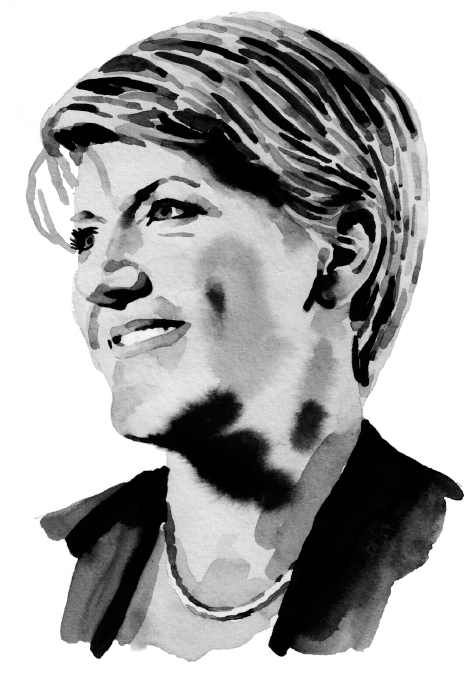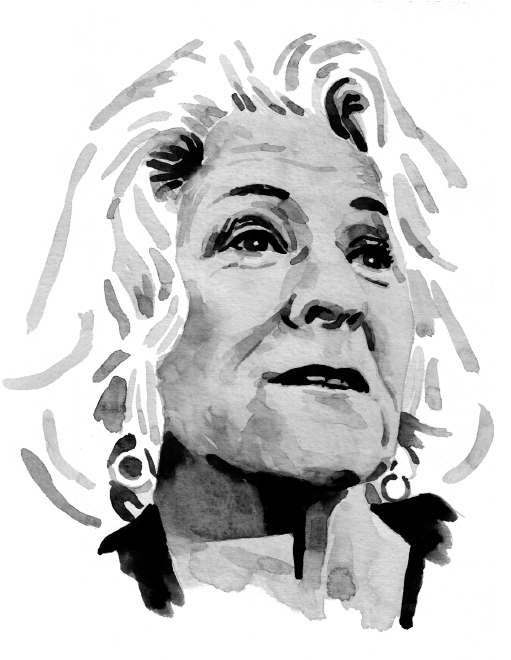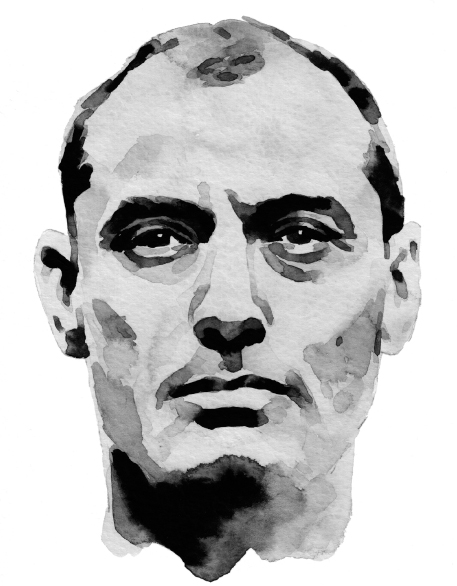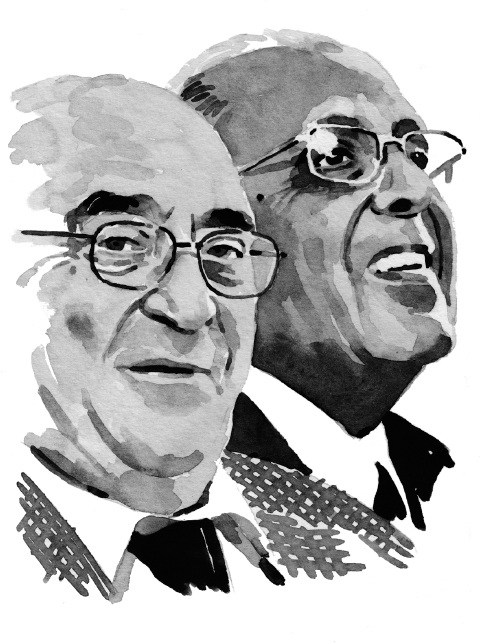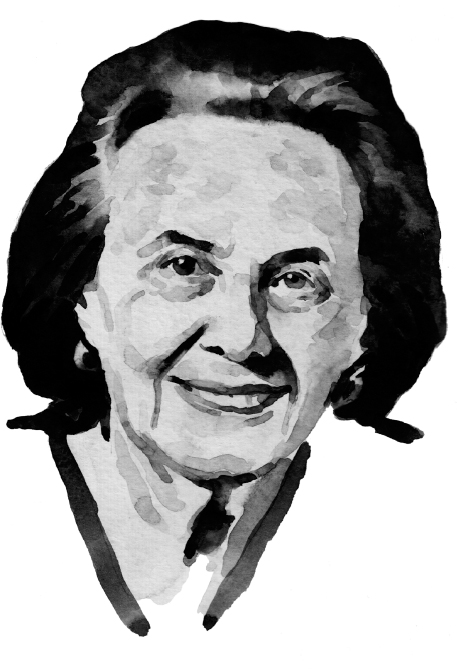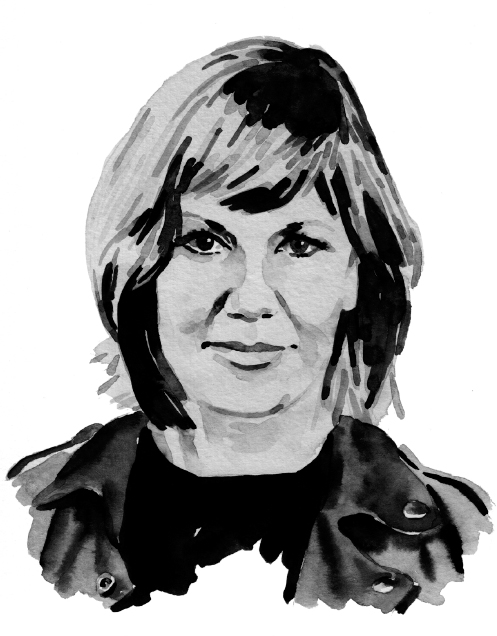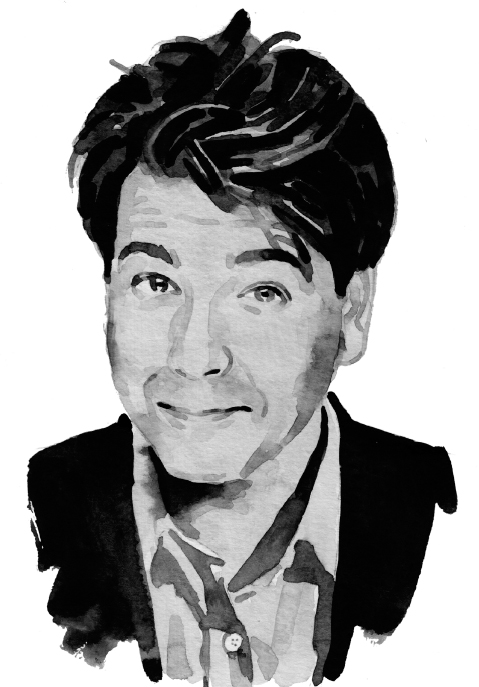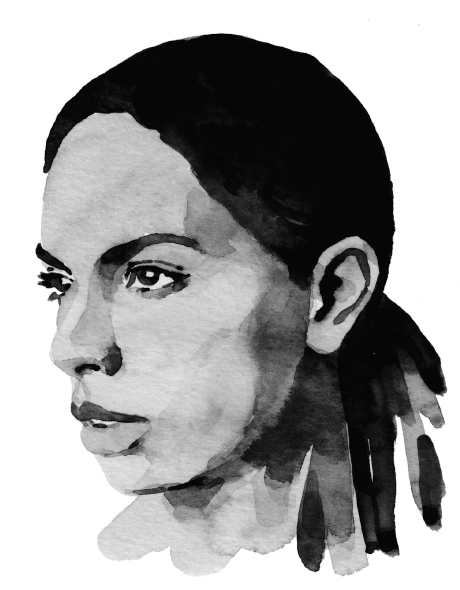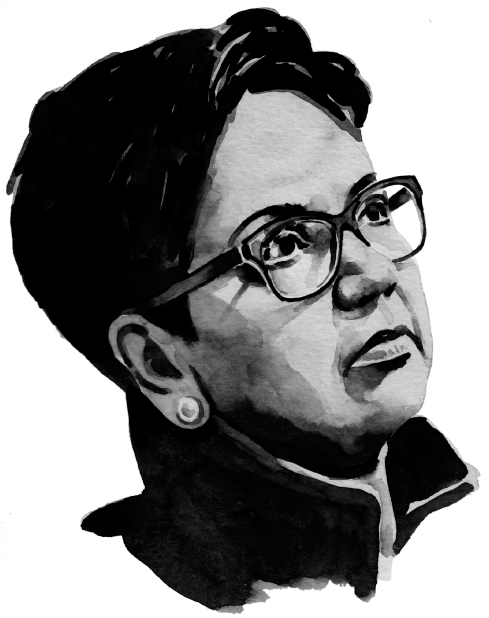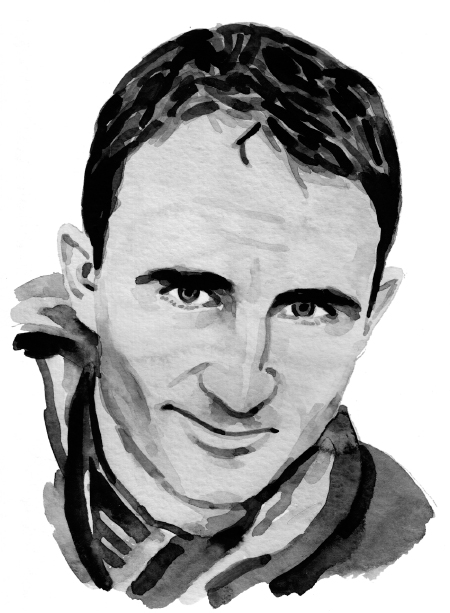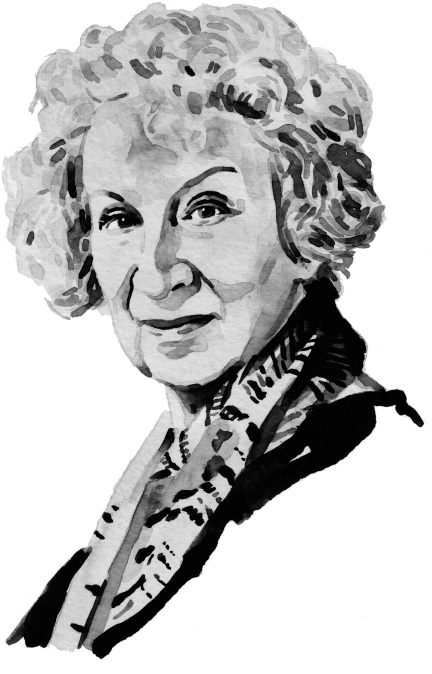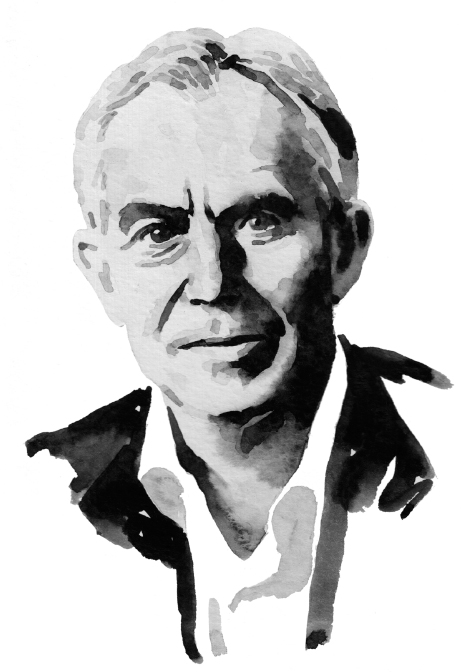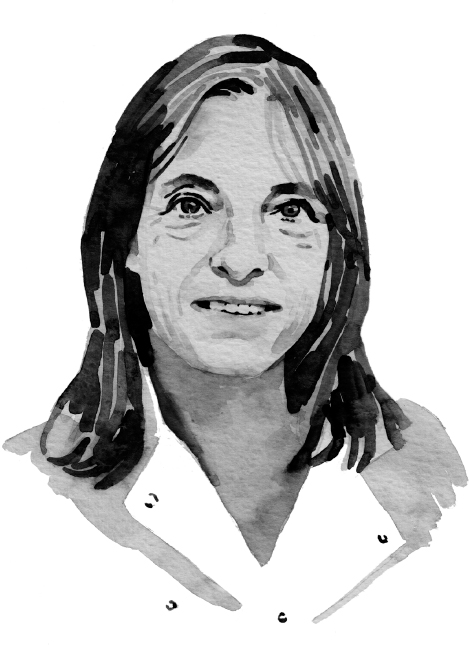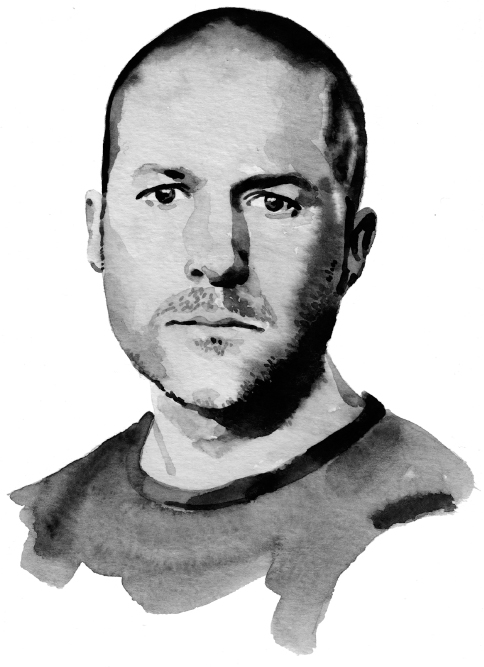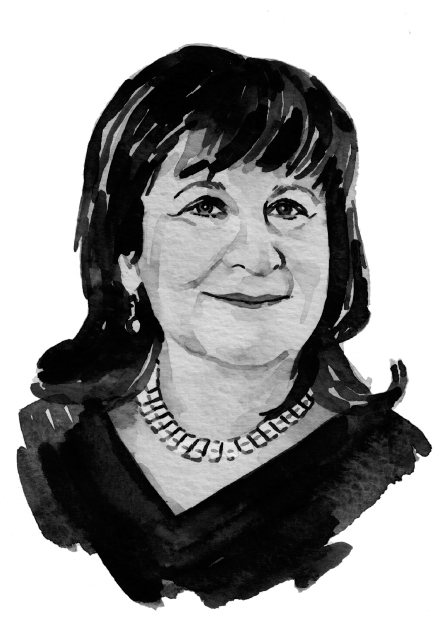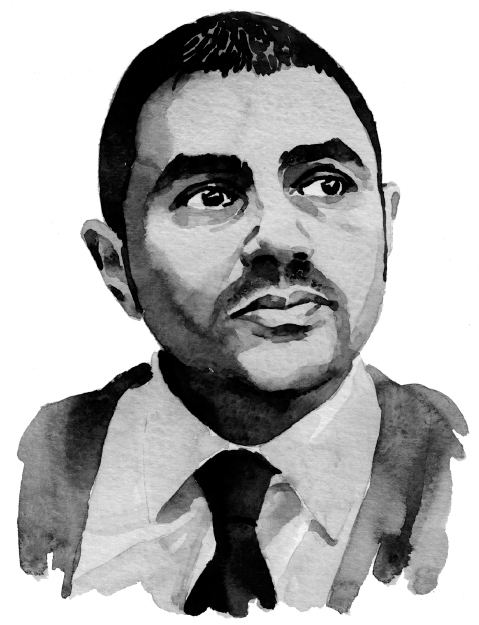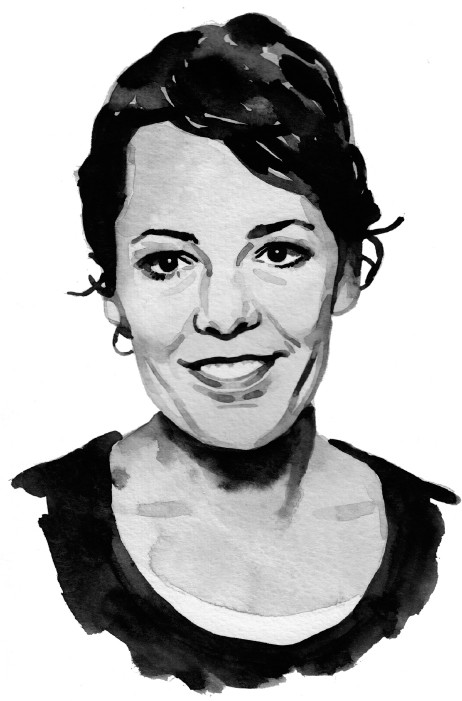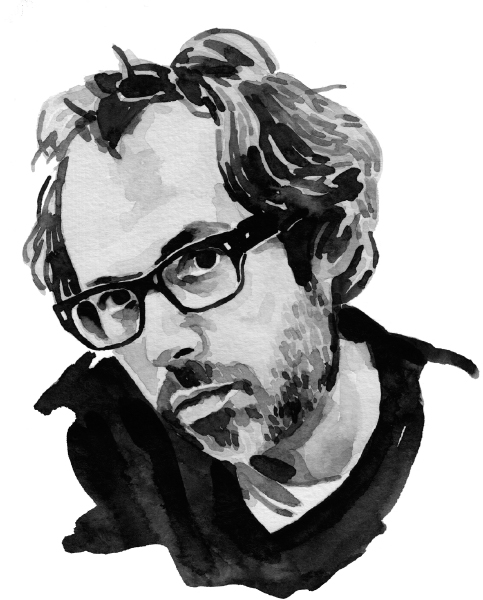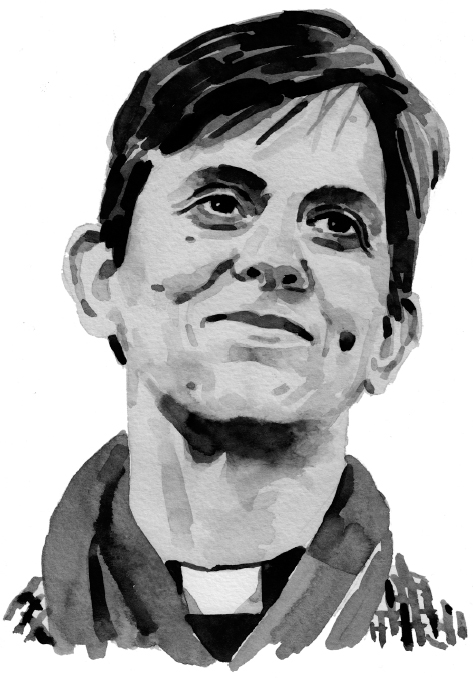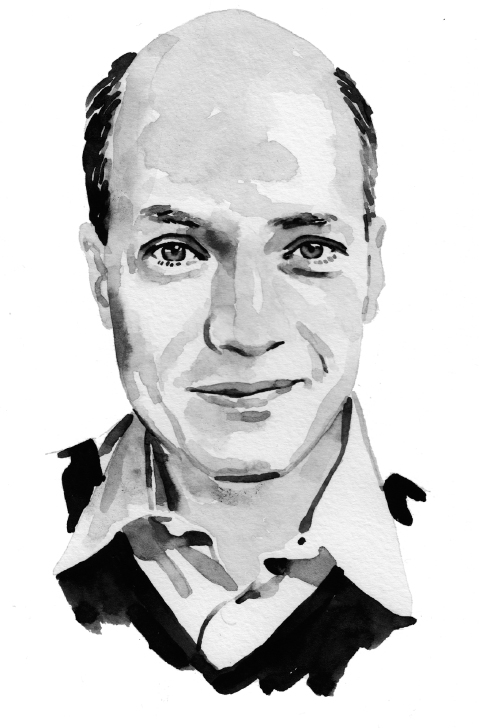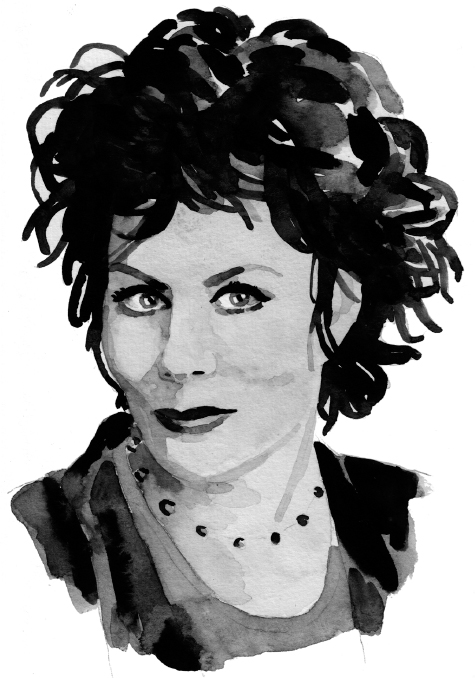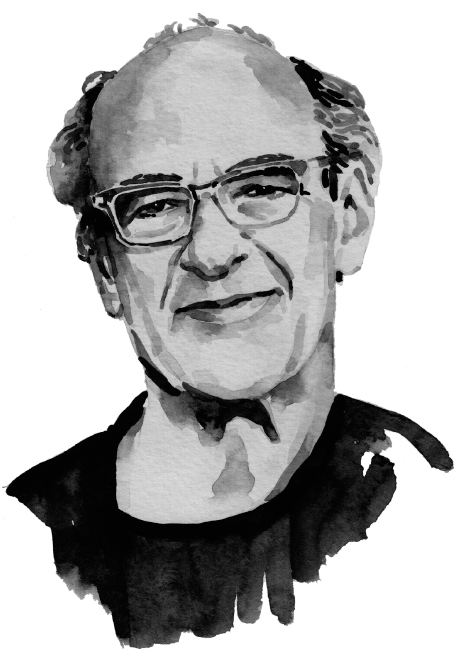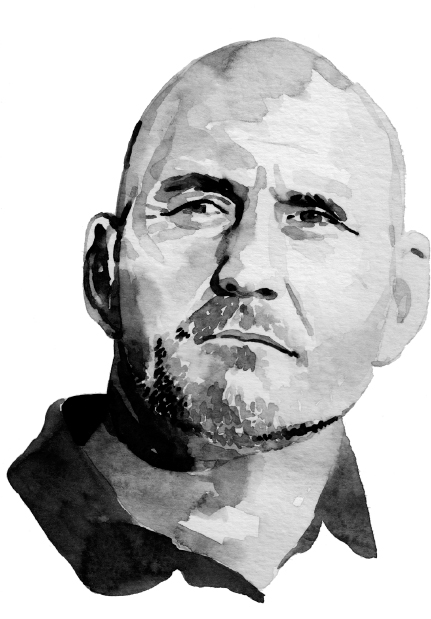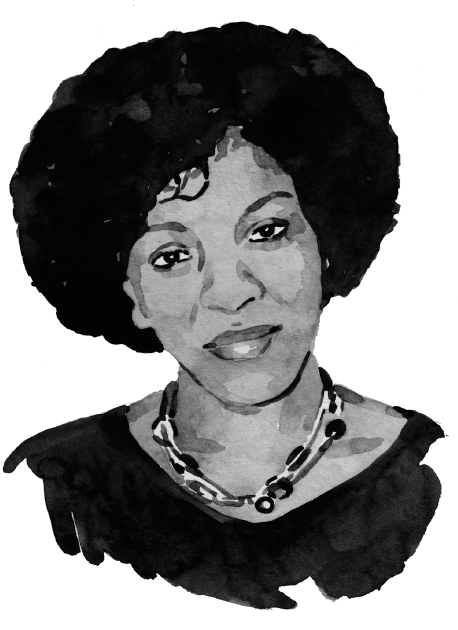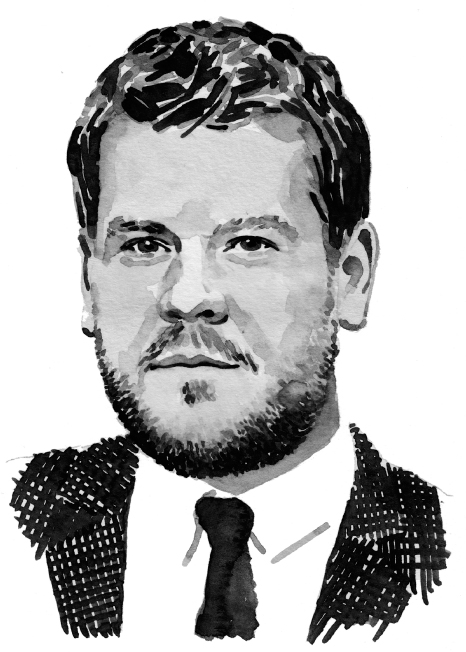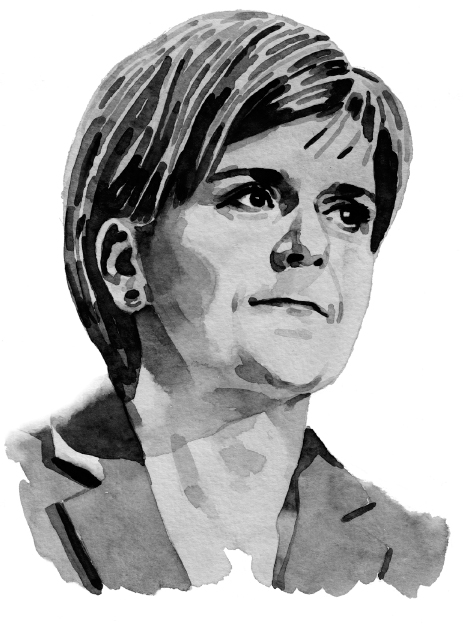REMARKABLE PEOPLE TEND TO BE focused; it tends to go with the territory. But no one, and I do mean no one, is more focused than Mickey Hart, drummer of the Grateful Dead, the seminal psychedelic rock band from the 1960s to the present day. Mickey’s ‘thing’ is rhythm. And he is all in.
On the occasion our paths first cross, I hear him before I see him. There’s a beat – a knocking, tocking sound – and a haunting wail coming from a secluded, fire-lit corner in this remote part of the Guatemalan Highlands where we’re staying.
Intrigued, I move towards the beat and find Mickey, cross-legged on the floor, eyes closed, gently swaying in front of the fire, with four Mayan shamans blowing, shaking and hitting their traditional ceremonial instruments, the same ancient rhythms and noises the Mayans have been making among these rainforest-clad hills for millennia. And Mickey is feeling it.
He’s flown into this far-flung spot to jam with the shamans in his never-ending search for new sounds and beats. This is what he does. He does rhythm.
To put this into context, this is a man who has a specially built lab at home in which he sits wearing his own specially built rhythm helmet, a device wired up to an MRI scanner to measure the effect on his brain of the different beats he plays. This is the same man who has worked with NASA to listen to the rhythm of the universe, recording the distant beats and rumbles from remote galaxies, describing the Big Bang as ‘the first note, the downbeat of the universe’. It’s all pretty cosmic, in every sense of the word, but these are serious endeavours. His latest project has him working with doctors on a study of the effect of different rhythms on disease: are there certain frequencies that can affect unhealthy cells and help them? If anyone can find out, it’s Mickey.
His advice, therefore, came as no surprise.
‘If I was to give one piece of advice, it is this: life is all about rhythm. Your heartbeat, great sex, the seasons, how often you call your parents, your good days versus your bad days, your DNA, the universe: everything has a rhythm. You have to develop a well-stretched ear and listen. The more you listen for the rhythm of your life, the more you will hear it. Find your rhythm. Live your life to its beat.’
But for now he is back with the shamans. They’re still playing in their trance-like state, summoning past ancestors, gods and monsters. Mickey is reverential to the shamans and respectful of their traditions, but he’s also a perfectionist. To his ear, something’s not quite right, something’s a little off. It’s the conch shell. Or more specifically it is the way the conch shell is being blown. Mickey knows a better way. He stops the proceedings, explains via the translator the nature of the issue, and in one short blast Mickey improves on 5,000 years of technique. The shamans look impressed.
‘FIND YOUR RHYTHM. LIVE YOUR LIFE TO ITS BEAT.’
– Mickey Hart
HAVING WORDS WITH CLARE BALDING
I THINK I’VE JUST BEEN CALLED a ‘beta male’. I’m with Clare Balding and we’re talking about gender equality and she said that the growth of the beta male is a positive thing, and looked approvingly at me. I’m not quite sure how I feel about being seen as one. I think I may secretly like it, which, if so, basically proves her assertion. And presumably makes her alpha female, at least in this conversation.
Certainly when it comes to presenting Clare Balding takes first place, no contest. She’s been in front of the camera at six Olympic Games, five Paralympics, three Winter Olympics, two Wimbledons, countless horse-racing events and a never-ending stream of TV shows and radio programmes. Add to that a best-selling memoir, constant public speaking and a new kids’ book, and you get the sense of an ambitious woman who works as hard as the athletes she interviews.
When the word ‘ambition’ comes up, it gives rise to a moment of reflection. ‘It’s funny, I have had so many old-fashioned newspaper critics write, “She’s very ambitious”, as if it’s negative because I am a woman. But I think, “Too bloody right I’m ambitious, why shouldn’t I be? Should I want to come second?”’
Sexism is unfortunately nothing new to Clare. She’s been exposed to it since the day she was born, quite literally. ‘My grandmother took one look at me in the crib and said to my father, “Oh, it’s a girl. Never mind, you’ll just have to keep on trying.”’ That set the tone for a family life in which Clare was constantly told women can’t do certain things and should behave in a certain way. Fortunately, it had the opposite effect and she’s been proving them wrong ever since.
A background radiation of homophobia is another thing she has had to grow used to. ‘A lot of people throw stones at me on social media and a lot of those stones are labelled “dyke”.’ It took her seven years to come out to her parents, because ‘I was so concerned about the shame of it, but I eventually woke up to the fact that I was complicit in the shame.’ Her advice to anyone in the closet is to get out of it damn quick. ‘You’re not protecting yourself and you’re not protecting others, you are in fact protecting the prejudice. Be proud, not ashamed.’ And she is optimistic that the world is becoming increasingly accepting of the LGBT community, recounting a sweet conversation she had recently with her five-year-old niece. ‘She said to me, “You’re married, aren’t you, Aunty Clare?” I said, “Yes, I am,” and she said, “So girls can marry girls and boys can marry boys?” I said, “Yes, they can.” And she said, “Well, that’s good, isn’t it?” So for this generation it will always have been normal.’
As well as the ambition and optimism, you also get the sense of a woman who is perpetually interested. It is in fact one of the main pieces of advice she passes on: ‘everything you do is an opportunity to learn, every person has a story to tell, if you think someone is dull it is because you’re asking the wrong questions’. With a natural curiosity, she has found her true vocation in a career that involves researching, interviewing, presenting.
She takes the gig seriously, and is rightly respected for having won every gong that’s going for presenting. In her view, it’s about helping the viewer experience at home what she is experiencing being right there in the middle of the action. ‘It is almost creating a virtual reality but without the glasses.’ To be able to do so, according to Clare, you have to remove all ego: it is never about the presenter, but about what is going on around you. The other critical thing is vocabulary. You need to build evocative sentences easily and quickly. Her trick for that is to read a lot of literature, especially poetry, so she has the language to hand to bring what she’s seeing to life in words.
Maybe it is a coincidence, but her most valuable piece of advice is about words, in this case specifically adjectives:
‘In life, we are not what we look like, we are not our gender, sexuality or religion or race, we are how we act and the impact that we have on others. And the best way to think about the impact we have on others is in adjectives. I ask myself “What person do I want to be?” But in adjectives, not nouns. How about kind? Healthy? Ambitious? Does thinking like that get me to a more fruitful and satisfying place? I think it probably does.’
It’s an original way of thinking about personal growth and leaves me with just one question: is ‘beta’ an adjective?
‘I’VE HAD OLD-FASHIONED NEWSPAPER CRITICS WRITE, “SHE’S VERY AMBITIOUS”, AS IF IT’S NEGATIVE BECAUSE I AM A WOMAN. BUT I THINK, “TOO BLOODY RIGHT I’M AMBITIOUS, WHY SHOULDN’T I BE? SHOULD I WANT TO COME SECOND?”’
– Clare Balding
NANCY HOLLANDER, JIU-JITSU LAWYER
I’M SITTING DRINKING PEPPERMINT TEA with David, Goliath’s nemesis. But David is not how I expected him to be. Firstly, he is a woman. Secondly, she’s American. And finally, she’s petite and seventy-two.
You have probably not heard of Nancy Hollander, which is a good thing for you personally. As an American criminal defence and civil rights attorney, you’d only come across her if you were, rightly or wrongly, in trouble. But without her, there is a dark part of the world we would know a lot less about: Guantánamo Bay.
Nancy Hollander is the lawyer of two of the men incarcerated in that prison, set up on foreign land by the US government under the Bush administration. It did so, seemingly, with the deliberate aim not to just imprison men they suspected of terrorist activity, but to do so indefinitely, unaccountably, with no charge but with plenty of torture, and in direct contravention of constitutional and human rights. However, if Nancy knows one thing, it is that the law is bigger than the government. So she is fourteen years into a legal fight on behalf of her clients to get the US government to abide by its own laws. It is a painfully slow battle but one she is starting to win.
As a master strategist, she engineered a tactical success by winning the right for one of her clients, Mohamedou Ould Slahi, to publish his Guantánamo Diary, a memoir recounting the extraordinary rendition, dark sites, savage beatings, torture and sexual humiliation he has experienced during his fourteen years in captivity. It made uncomfortable reading, especially for the American government. The furore around the book helped to bring attention not just to the abuses but also to the reality of Mohamedou’s situation, that he had been held in Guantánamo Bay for well over a decade, uncharged with any crime, and even after the former chief prosecutor in Guantánamo had said publicly there was no evidence that Mohamedou ever committed any violence against the United States.
His case, or lack of one, has been a troubling manifestation of the illegal practices that Nancy constantly fights.
But in this case she has fought successfully: after nearly a decade, and as this book goes to print, she has just obtained approval for his release, although an actual date is still to be given. Her work continues.
In conversation, Nancy is absolutely focused on due process. She will not reveal a single piece of potentially classified information about any of her clients or the conditions in which they are held, even if that information is already in the public sphere. She will not do anything that could potentially give the US government opportunity to undermine her or her achievements to date. Her one action outside formal procedure is the metal kangaroo badge permanently pinned to her lapel, a silent protest of the ‘kangaroo court’ style of justice her clients are being subjected to.
As a young woman growing up in Texas in the 1950s, she was no stranger to injustice. Aged ten, she was the only student in a class debate to support the Brown vs Board of Education court case that said segregated public schools were unconstitutional. Her teachers rang her parents to say they were worried about her for being so strident. But as ‘intellectual lefties’ they supported her. At age seventeen she would follow police paddy wagons around Chicago at night, taking photos of cops beating up people. She has been arrested on three separate occasions for peaceful protest and has spent her entire life fighting for people’s rights, irrespective of what they may or may not have done. She may be a small woman, but she stands tall and resolute in front of power.
What comes out in our conversation is that Nancy is an avid practitioner of martial arts, and jiu-jitsu in particular, and she uses the principles taught by her sensai in taking on opponents much bigger than herself:
‘Whatever you do, do it with intent. In martial arts we call it “one plus one”. Just one good kick and one good punch is better than twenty you didn’t have any intent behind. Do not say something unless you mean it, do not do something unless you are committed. Do not confront by shouting, but confront by using your intellectual powers and the power of a better argument, by standing your ground, by keeping your centre, by never transgressing so they cannot attack. Ultimately, the trick is to absorb and redirect their energy. You use their own power against themselves.’
None of this is at small cost to herself. Her tireless work has meant she’s been accused of being a terrorist sympathiser or a flat-out terrorist, purely for her insistence that the government follows its own constitution and prosecutes people fairly. She says that the people who have criticised her the most savagely have been those within, or connected to, the Bush administration. Which she says is ironic, as they are the ones who, by falsifying reports, condoning torture and signing off on extraordinary renditions, have been breaking the law. And who, therefore, one day may need her services most.
Absorb and redirect indeed.
‘WHATEVER YOU DO, DO IT WITH INTENT. JUST ONE GOOD KICK AND ONE GOOD PUNCH IS BETTER THAN TWENTY YOU DIDN’T HAVE ANY INTENT BEHIND. DO NOT SAY SOMETHING UNLESS YOU MEAN IT, DO NOT DO SOMETHING UNLESS YOU ARE COMMITTED.’
– Nancy Hollander
ON THE DAY WE MEET, time is running out for Jude Law. Not in respect to life generally, but on his parking meter. To avoid the faff of finding loose change and re-parking, we decide to sit and talk in his car, pulled up on the side of Shaftesbury Avenue, a kind of poor man’s Carpool Karaoke.
We chat about our respective childhoods. I mention I grew up in Huddersfield, and to my surprise Jude says he’s going there at the weekend. No disrespect to my hometown, but it’s not normally a place where international movie stars go to hang out. When I enquire what takes him there, he explains it is to meet with the uncle of a young Syrian boy who Jude befriended when he visited The Jungle, the makeshift refugee camp in Calais. The child-refugee in question had seen his mum, dad and siblings die in the crossing from Africa and was in the camp all alone, so Jude offered to pay the legal fees and oversee the process of getting him out of the camp and into the arms of his one remaining family member up in Huddersfield.
The fact that Jude went several times to the refugee camp in the first place, is doing all this personally for the young lad, and, most tellingly, it only comes up in conversation because of an unlikely coincidence says a lot about the guy off screen.
In fact, Jude Law has a long history of going the extra mile to support important causes. On previous occasions he travelled to the Democratic Republic of the Congo and to Afghanistan with the peace-making organisation Peace One Day; he was part of an initiative that managed to broker a twenty-four-hour ceasefire agreement between the Taliban and the American military in Afghanistan, the result being that during the brief cessation 10,000 health workers were mobilised and inoculated 1.4 million children.
He puts his track record of stepping out of the limelight and into pretty tough places down to several things. One is to make sense of this strange thing called fame. ‘I’m in no way comparing myself to him, but my hero John Lennon said, “If you’re going to poke a camera in my face, then I am going to say something important.” That’s the worth of media and fame, to help important things get noticed.’ He also says if he were to stick to just the movie-star life of five-star hotels and VIP experiences then he would ‘feel fat with guilt’. On the most basic level he has a curiosity about the world and a desire to engage with as many different aspects of it as possible. His perspective is essentially, ‘Why wouldn’t you want to go to these places?’
This ethos of experiencing life for its own sake is echoed in his advice for people who want to make it as an actor. ‘There is such a large amount of luck needed to get your moment, so you have to be in acting for the right reasons: do it because you love the thing, the process, because you’ll enjoy doing a no-pay play in a room above a pub. You have to be happy doing it that way, because what happens otherwise if you don’t get your break?’ He says it is having that love of the actual thing that will keep you sane if you do make it because otherwise ‘it can fast start to feel like a business and you will need to keep that original flame alight or you can lose your way’.
When I ask for his single best piece of wisdom, we revert back to talking about his childhood, and he credits his dad with his favourite piece of advice, given to him as a young boy:
‘If you are going to be late, enjoy being late.’
It was a piece of advice he meant literally: that if you are late, rather than panic and get stressed, enjoy the extra time it is affording you. But as a piece of advice it has served Jude as a wider metaphor for life, reminding him to ‘relish the moment, be in the moment, do the right thing in the moment, whatever that moment is’, be it in a refugee camp, a room above a pub or the set of your latest blockbuster.
And with that, he has to go. He’s running late.
‘If you are late, enjoy going to be being late.’
– JUDE LAW
PILLOW TALK WITH JOAN BAKEWELL
AGED EIGHTY-THREE, JOAN BAKEWELL, THE much-loved BBC presenter, writer and member of the House of Lords, is a woman who has no time for getting old. Not only is she too busy to pay it any regard, she simply rejects the whole concept of it in the first place. ‘I don’t believe in the so-called declining years. Every day is a full twenty-four hours, with sixty minutes in each hour, and it is the same amount of time whether you are twelve, twenty, forty or eighty. You’re getting as much daylight as anyone else and the same amount you’ve ever got. It’s up to you what you do with it.’
We’re having this conversation in her bookish town house set in the corner of a leafy North London square. And when I say bookish, I mean it literally. Books really are everywhere. ‘I know, I’ve got so many of the damn things.’ She tells me she has a solution. Every Saturday and Sunday she has started putting a box outside her house of the books she’s read and passers-by help themselves. It’s a solution that neatly matches her career of spreading ideas and putting things out there.
In conversation, Joan comes across as a woman with her yin and yang right where she wants them. She talks about the two lives we each have – our inner life, which comes alive ‘when you’re walking alone or sitting quietly or listening to a piece of music’, and our outer life, when ‘you’re going, hello world, here I am, I’m doing lots of things, watch me do them’. And she has found that it’s better to ‘let the inner life lead, and let the outer life conform to it’.
She’s specifically talking about what she calls the ‘hunches within us’, deep-seated urges that can guide us to what we will find most gratifying. ‘People look for good jobs with good hours and pensions, and none of that is going to be relevant to how you feel about your life. It really isn’t.’ She counsels that life is more nourishing if we follow our instincts instead.
But we have to listen carefully for this quieter, inner guide. To this end, she advocates deliberately making the time and space to let such voices be heard. She tells me that she has recently come back from a month by herself in a tiny one-bedroom cottage, to just write and spend time with herself. ‘While I was there my social life consisted of walking to the stream at the bottom of the garden. Most of us are normally choked with activities, so bouts of solitariness can be very rewarding.’ Building in such time to just be means that ‘really extraordinary things can crop up in your head that you didn’t know were there, sort of like waking dreams, fantasies, ambitions. They come out of somewhere that is pre-language, and finding your way back to that place is very important. Once you start articulating ideas in words you’ve already lost some of the options.’
It’s surprising to hear someone who is professionally eloquent recommending getting back to a pre-language, wordless state, but she says it is a characteristic of anyone creative she’s ever known. And she believes we all benefit from allowing time for things to settle, ferment and rise to the top. ‘The answer to most people’s problems tend to be embedded somewhere inside themselves already and will make themselves felt if given the opportunity to.’
The one counter point she makes to the importance of our inner guide is that you have to keep an element of critique as well. There should be no self-delusion; you need to be clear-sighted about what you can and cannot do. And there also has to be, at some point, action. She is not advocating spending the rest of your life daydreaming by the stream at the bottom of the garden.
The advice she passes on reflects this view on life and is the same advice she has always given her children:
‘If you put your head on a pillow late at night and think it hasn’t been a good day, wake up next day and change something. It might be your ideas or attitude, it might be to leave a job or husband. It could be anything, but change something. Don’t just drag on a set of circumstances which just aren’t falling into the right places. You’ve got to listen to and then act on that inner spark.’
It’s an approach that taps into her first point about ageing: if you nourish your inner self and act in line with it, ‘you can go on being as fruitful and as full of ideas as the day is long. You’re only declining if you think you are.’
She cites Robert Plant, her neighbour, as an unexpected inspiration in this regard. ‘He’s fantastic, incredibly productive, and he’s sensational to look at too, very rugged, like Mick Jagger, and with this incredible hair. He’s showing no signs of these so-called declining years at all.’
And neither, it has to be said, is Joan Bakewell.
‘IF YOU PUT YOUR HEAD ON A PILLOW LATE AT NIGHT AND THINK IT HASN’T BEEN A GOOD DAY, WAKE UP NEXT DAY AND CHANGE SOMETHING. IT MIGHT BE YOUR IDEAS OR ATTITUDE, IT MIGHT BE TO LEAVE A JOB OR A HUSBAND. IT COULD BE ANYTHING, BUT CHANGE SOMETHING. DON’T JUST DRAG ON A SET OF CIRCUMSTANCES WHICH JUST AREN’T FALLING INTO THE RIGHT PLACES. YOU’VE GOT TO LISTEN TO AND THEN ACT ON THAT INNER SPARK.’
– Joan Bakewell
AHMED ‘KATHY’ KATHRADA AND DENIS GOLDBERG, FREEDOM FIGHTERS
I ENTER THE MAYFAIR HOTEL ROOM to interview Ahmed ‘Kathy’ Kathrada and Denis Goldberg, two of Nelson Mandela’s fellow freedom fighters, who stood trial and were imprisoned with him for nearly three decades of hard labour. The first thing that is pointed out to me is the modestly sized bed.
‘That bed is bigger than the cells we were kept in on Robben Island for twenty-seven years.’
In a small, simple way it brings to mind some of the deprivations these men endured in dedicating their lives to fighting apartheid in South Africa.
Between them they have experienced the worst of what humans do to one another – torture, violence, the murdering of loved ones, unjust imprisonment, solitary confinement, thirty years of separation from their families (Denis’s wife was allowed to visit twice in the whole period of his imprisonment).
Despite these experiences, not once did they withdraw from the fight. They made a pledge as young men to overthrow apartheid and they spent every waking hour of the next sixty years doing so.
So where did this commitment to cause, this resilience to hardship come from?
Kathy can pinpoint the moment. It was aged twenty-two, on a visit to Auschwitz as a young man after the end of the Second World War. Here, among the profoundly disturbing reality of what had happened (evidenced by the human bones still scattered casually around the ground), that a dark truth dawned upon him. ‘Stood there, I realised that the logical conclusion of racism was genocide. It became clear to me we had to end apartheid to prevent the same happening to the South African people.’ After seeing what he saw, and having reached the conclusion he did, it meant he had to take up and never give up the fight.
An understanding of the history of man’s struggle for freedom also helped to form their resolve. Denis recounts that as a young white man he was raised by socially aware parents who not only made sure he respected all people who came to their house irrespective of colour, but also educated him about the Gandhi-led movement for Indian independence, told tales of the lesser-known German resistance and explained the hundred years of struggle by indigenous South Africans against British colonisation. These stories of resistance against an oppressor inspired him and showed him that freedom was not only worth fighting for, it could also ultimately be won.
They are two of the most remarkable men imaginable. As they recount without any bitterness the extreme costs of their sixty-year fight, the humour remains constant (How did you manage to cope with the hardship of prison? ‘We got lots of practice.’) and their energy and fight is undimmed.
The morning before we met, Denis had been invited to 10 Downing Street to meet David Cameron. Denis’s opening salvo to the Prime Minister: ‘So when are you bloody Imperial Brits going to stop beating up on South Africa?’
Denis is the more fiery of the two gentlemen. In some ways his story is even more pronounced, as he was a white man fighting for an end to apartheid, which was virtually unheard of and meant he was shunned by his own community in a way the other fighters were not. But all men paid the same price for fighting for freedom: life imprisonment.
In fact, even worse had been expected. During the infamous Rivonia court case (1963–64), where Denis, Kathy, Nelson Mandela, Andrew Mlangeni and others stood trial for their action against the South African apartheid regime, everyone expected them to receive the death penalty. They had signed up to their campaign from the beginning knowing it was the most likely outcome.
Following a three-hour speech by Nelson Mandela, the final verdict shocked everyone: life imprisonment. When Denis’s mother, who was hard of hearing, called from the gallery, ‘What is it? What’s the verdict?’ Denis replied, ‘It’s life. Life is wonderful!’, a response which gives a sense of the undying resilience and granite-hewn optimism of the men.
An uncomfortable lump in my throat forms as I consider that this moment of relief was then followed by more than twenty years in prison, experiencing the hardest of incarcerations. Understandably, they prefer to dwell on the outcome, not the experience, the victory, not the battle.
So I ask them about how they achieved the success. What brought about the end of apartheid? With totally clarity, the men cite four factors: the armed struggle, which meant the government undermined itself by increasingly spending more and more money on fighting its own people; themselves as political prisoners, which gave the movement respected figureheads unjustly treated; the international solidarity movement, where governments and civil organisations boycotted South Africa and signalled their opposition to the regime; and finally, the people’s struggle in South Africa – the United Democratic Front, the trade unions, civic organisations – the majority of the country coming together to protest, to disrupt, to say No More.
Kathy is clear that, of the four aspects, the mass struggle was the most important. As Nelson Mandela said to the Minister of Justice from his prison cell in Robben Island, ‘The future of South Africa can be by bloodshed and in the end the majority will win, or it can be by a negotiated settlement.’ With the majority of the people actively protesting and pushing for change, the government eventually conceded.
When I ask what has been the main lesson from their most remarkable of lives, the answers are the most profound of all I have heard.
From Denis:
‘I am going to quote John Stuart Mills from the mouth of Nelson Mandela, “To be free it is not sufficient to cast off your chains, you must so live that you respect and enhance the freedom of others.” It’s the same concept of what Archbishop Desmond Tutu calls Ubuntu. I am who I am only through others in society. We’re humans in the end, and that’s what it’s all about.’
And then Kathy quietly, gently but definitively states his truth:
‘And ultimately, the fight for justice will inevitably lead to success. No matter what the sacrifices are.’
As these men know.
LILY EBERT, AUSCHWITZ SURVIVOR
‘WE WEREN’T SEEN AS ENEMIES, we weren’t seen as humans, to the Nazis we were just cockroaches. They completely industrialised their killing of us.’
I’m sitting talking with Lily Ebert in a quiet room in North London’s Holocaust Survivors Centre, the first of its kind in the world. Lily is a proud, defiant, eloquent lady, but as she recounts her experience of Auschwitz she pauses many times. Seventy years on, the pain of mankind’s most horrific genocide remains acute. As Lily says, ‘It is very difficult to explain something that is unexplainable.’
‘The lucky ones died’ is her reflection on the transportation to Auschwitz: hundreds of people rammed into railway cattle trucks in the heat of the summer, with no food or water for five days, surrounded by the dead bodies of those who didn’t make it. Lily recounts the last thing her mother did before the train arrived. She made Lily swap shoes with her. Hidden within the heel was a small piece of gold, the last of their family’s possessions. Call it a mother’s intuition, but when they arrived at Auschwitz, Dr Mengele, the Angel of Death, separated the masses into two groups: half were sent left to what would be their immediate death in the gas chambers, and the others were sent right to the slow death of starvation in the camp. Lily’s last memory of her mother, younger brother and sister is of seeing them being pushed left.
Inside the camp, Lily and her two younger sisters were stripped of their clothes and dressed in rags, fed on one piece of bread a day and housed in sheds crammed with ten times the number of people they were built for. Every day there were constant ‘selections’, where anyone deemed not fit enough to work was sent off to the crematorium next door.
Lily says the worst thing of all was the terrible smell emitted from that factory-like building, with the chimney that smoked twenty-four hours a day. It was only when she asked some fellow campmates what was made there that people explained that it wasn’t a factory, it was where they burnt Jews, and the only way out of Auschwitz was up that chimney. ‘We told them they were mad, that we didn’t believe them. But very quickly we found out it was true.’
In the hell of this experience, Lily promised herself that if she did somehow manage to survive she would spend the rest of her life telling people about Auschwitz so it couldn’t happen again. A promise she is keeping for the thousandth time by telling me her story today. That sense of purpose and the responsibility she felt to look after her two younger sisters gave her reason to stay alive in a place where she would otherwise rather have been dead.
It also gives context to one of the pieces of advice she wants to pass on: ‘To always have hope against hope. I was as down as a human being can go but look at me, I survived. I have gone from nearly starving to death to, seventy years later, being sent to meet the Queen and being given a BEM. So no matter how bad the situation, try to do what you can and don’t give up.’
However, her most precious piece of advice is:
‘Make always the best from what you have, no matter how little it is.’
She brings the thought alive by referring back to that one piece of bread they each had to survive on each day. ‘Some in the camp could not make the best of it, they ate it in a second and they dreamed to have something else, but there was nothing else, and they were the ones that didn’t survive. I would always eat the one piece of bread as slowly as possible and keep some for the morning hidden under my arm. And that helped me survive.’
At the end of our meeting, Lily proudly shows me a small gold pendant round her neck, which she has worn every day since being freed. She explains it is the piece of gold that her mother hid in her shoe, which she managed to keep hidden throughout her whole time in Auschwitz.
I reflect on what this piece of gold and its owner have seen and had to endure. The starvation, the brutal conditions, the worst of mankind. But it also creates a small question in my mind: given that she lost her shoes in the camp, how did she manage to keep the piece of gold? Eyes sparkling with triumph, Lily says: ‘I told you, you have to make the best of whatever you have. The only thing I had was that piece of bread, so I hid the gold every night in that and they never spotted it. I was cleverer than them.’
Lily Ebert: pure gold.
‘MAKE ALWAYS THE BEST FROM WHAT YOU HAVE, NO MATTER HOW LITTLE IT IS … I WOULD ALWAYS EAT THE ONE PIECE OF BREAD AS SLOWLY AS POSSIBLE AND KEEP SOME FOR THE MORNING HIDDEN UNDER MY ARM. AND THAT HELPED ME SURVIVE.’
– Lily Ebert
THE HEART-BREAKING GENIUS OF RICHARD CURTIS
IF THE OSCARS HAD a category for Best Human, Richard Curtis would get nominated. Not for the pleasure his script-writing has brought to the masses, abundant though that is, with Four Weddings and a Funeral, Notting Hill, Love, Actually and other such treasures to his name, but for his decades-long commitment as co-founder, leader and/or chief agitator for such era-defining social initiatives as Comic Relief, Red Nose Day, Make Poverty History and Live 8. No other person has done more to make development aid and charity part of the mainstream.
From such an evolved human being, I have high hopes for his best piece of advice, especially when he says he’s thought about it in advance and committed his wisdom to paper. ‘So here it is,’ he says, as he opens his writerly, leather-bound notebook. He sits forward, clears his throat and announces:
‘Don’t let your mum cut your hair. That’s important.’
Closes book, sits back.
He’s serious, sort of. ‘My mum did mine once and I didn’t talk to her for three weeks.’ This recollection triggers a follow-up insight. ‘And if you’re a mum, don’t cut your son’s hair, he’ll hate you.’
It’s not just his wisdom on hairdos that is rooted in childhood, most key attributes of his life have an invisible string that, when pulled, brings up a story from his younger years. He confesses to having scripted so many romantic movies ‘because I had my heart broken at university’, and he writes a ‘Hapless Bernard’ into every movie, an in joke-revenge of a man who once stole his girlfriend.
More significantly, it was during one of his younger, love-struck, feeling-sorry-for-himself moments that his father said something that changed Richard’s perspective on life in general. ‘My dad, not unkindly, described his own life at eighteen, which was finding himself fatherless and cleaning toilets on a ship to earn money, and compared it to what my life was like. And I was absolutely fixed after that. It gave me a sense of perspective between my problems and other people’s that I have kept forever.’
A second slice of childhood wisdom from his dad has also reverberated through his life: ‘He always said you can’t be happier than happy.’ The idea that if you are content and things are good, do not be disturbed by the possibility that they could be better. ‘Don’t let a lovely day out in the countryside be ruined by the fact that it’s not sunny.’
As with his movies, though, there is a twist. ‘I say that, but I am an unhappy person almost all the time.’ I assume he’s joking, but in response to my protestations he explains that raising money for the development of the world’s poorest nations means he gets his heart re-broken several times a day.
‘With the charity work I feel the pressure of every phone call, that if I can talk this person into doing something, kids survive, if I don’t, they won’t. Just today I got a call from a lovely guy saying he won’t be able to do a sketch and of course I have to lie and say “It’s OK, you helped last year,” but inside I am dying.’
So his best piece of advice comes directly from his experience of trying to change the world, but also reflects the frustration and heartbreak that comes from knowing people talk a good game but often fail to help when the need for aid is so vast.
‘None of us should ever underestimate our ability to change people’s lives. There is a direct cause and effect of what we do here and what happens there. But if you want to help you have to actually do something. You can’t just talk about it. My motto is “If you want to make things happen, you have to make things.” Create an object, a slogan, a film, a little book, a badge, a hashtag, a Red Nose Day … make something so wonderful that it captures people’s hearts and minds so they can’t help but be dragged in and help. And even better, make it funny too. That’s all I have ever done.’
And there is no one who does it better.
FOR SOMEONE RUNNING ONE OF the world’s largest and most complex cultural institutions, Jude Kelly, artistic director of the UK’s Southbank Centre, has a simple description of what she does. ‘I tell stories. That’s what I have been doing all my life.’
It is a statement she means literally. Throughout her career she has directed more than a hundred plays, including for the Royal Shakespeare Company and in the West End, and now has the biggest job in the arts in the UK, but it all started with her as a young girl putting on plays in her back garden, using the neighbours’ children as cast members and their parents as an audience.
Those childhood plays not only gave clarity on what to do with her life (at the age of eleven she declared she was going to be a theatre director and has been making it happen ever since), but those early exploits also provided the defining attribute of her approach to story-telling: the absolute imperative of making the arts fully inclusive. ‘I loved the idea that the whole neighbourhood would gather together to watch the plays, and I felt very upset if everyone wasn’t there. I hate people being left out. Not just for their sake, but for our sake too.’
It is an organising principle that has driven Jude ever since: that both the community and the art of that community are better served when everyone is included. ‘We need people with different life experiences so we can hear each other’s stories, to add to them, to understand them, to disagree with them, to help people stop feeling self-conscious about bumping into other tribes and help people feel there could be something richer if they experiment with other human relationships.’ In short, making the arts inclusive deepens society’s empathy and cohesion.
The Southbank Centre is publicly funded, which furthers her resolve to make all welcome: ‘The whole of society pays into the pot, so everybody needs to get a slice: that is my absolute driving energy and belief system.’ And she delivers. On the day I visit the Southbank there is a Pram Jam for parents with young children, an Indian performance artist, a classical concert by refugee musicians, a banging techno night, Jeremy Irons reciting Shakespeare, an a capella beat-boxing show, a circus, some stand-up comedy and a street-food market. Something, in other words, for everyone.
Jude also has a parallel role as founder and leader of Women of the World, a global festival that celebrates women and girls and looks at the obstacles they face. It fits with her mission of getting everyone included, with a clear focus, in this case, on gender equality. She says her awareness of the ever-present issue has been heightened by being a female leader and the sheer number of times young women have come to ‘ask for advice on the things they were struggling with: work/life balance, whether to have children, what would happen to them if they did, the way they were treated at work, the way they were treated by partners, issues of violence, rape, online porn, body image, it goes on and on, but also positive stories too, things women and girls have achieved’. So she decided to start the festival as a place for people to come together, talk about their issues, feel positive and explore what gender equality could one day look like.
Amazingly, she originally received some resistance to the idea. ‘When I started the festival people said “Really? Haven’t we already done gender equality?” But I knew we hadn’t done it by any means. And that was before Malala was shot, before Boko Haram had captured the Nigerian girls, before the Delhi gang rapes, so we need to pick up the stone and look under it. But also celebrate the things that have been achieved, the wonderful stories too, so it gives us stamina and energy.’
Jude says the issue has to be tackled in the arts, too. ‘Most plays, most films, most novels, most artworks historically have been by men, and there’s always been a central doubt expressed over and over again, can women be truly creative compared to men? Historically there has been a view that says, well, women have children, that’s their creativity. It’s a version of the same thinking that says black people have strong bodies but they’re not very intelligent, or the Chinese are very clever but don’t have an emotional life, all these damaging stereotypes framing half the human race inside a patriarchal power structure that has been inherited and internalised over thousands of years.’
This mission to tackle and defeat the ingrained issue of gender equality is much more than a day job. It strikes me as the story she will most want told about her life, and in keeping with such a script she offers her most valuable piece of advice about, and to, women:
‘WOMEN HAVE TO HONOUR THEIR OWN POTENTIAL. WOMEN MUST GIVE THEMSELVES THE RIGHT TO THRIVE IN EVERY SINGLE WAY, AND NOT DEFINE HOW LOVING OR HUMBLE THEY ARE BY THE AMOUNT THAT THEY ARE PREPARED TO STEP SIDEWAYS TO ACCOMMODATE SOMEONE ELSE. THEY NEED TO SAY, “I’VE GOT ONE LIFE, I’VE BEEN GIVEN LIFE, IT HAS BEEN BREATHED INTO ME AND HERE I AM AND I SHOULD USE IT FOR THE BEST POSSIBLE PURPOSE.” WHATEVER EACH WOMAN HERSELF DEFINES THAT TO BE.’
– Jude Kelly
I’M ON THE PHONE TRYING to arrange a meeting with Michael McIntyre, the highest-grossing comedian in the world, but I can’t: he’s making me laugh too much. The experience, however, is at least answering a question I’ve always asked myself: are professional comedians funny when they’re not on stage? In this case, the answer is: oh yes.
When we finally do meet in person, it continues. Michael starts by noting that I’m talking too loudly for a restaurant – almost as noisily as an American, he adds in a faux-bitchy whisper. He confesses to suffering from what he calls ‘restaurant hush’, the British middle class need to speak quietly when you are somewhere a bit posh.
Surprisingly, for a chat with one of the world’s funniest men, we quickly get into the topic of financial planning: the importance of never spending more than you earn, of avoiding the perils of credit cards and compounding interest. The reason: as a struggling stand-up he spent ten painful years spiralling into debt before making it big. ‘By the time I was thirty my career had gone nowhere and I’d got myself £40,000 in the hole. I was sitting in my room and thought, my life is not my life, I’m renting everything: the flat’s rented, the furniture’s on credit, the TV I’m paying off at Dixons … even that video needs to go back to Blockbusters.’
It’s funny material now but was serious back then. The bailiffs were called in. The first time they took his car, then the furniture, then his appliances. On one visit he realised there was a man with a boom microphone accompanying the debt collector. When Michael queried the recording equipment, he explained he was making a documentary about bailiffs for Radio 4. ‘I said, “I can’t be in that,” but then I thought maybe this could be the break I’m looking for, so I started to try and be funny, thinking maybe if I’m on the radio someone will get in touch.’
So what took him from those dire straits to centre stage? A simple but fundamental thing happened: he had Lucas, his first child. According to Michael, comedians get funnier when they become parents, mainly because they have to. For him the effect was instant: the sense of responsibility, the need to provide. ‘I thought I’m going to do whatever it takes to make it before he can speak. I don’t want his first words to be, “Daddy, why is that man taking the video recorder?”’
So the motivation was clear, but how does a comedian actually make themselves funnier?
‘I was crazed with it. I started doing gigs seven nights a week, for less money, for no money, just to keep practising, to get the jokes together, and to get the stage time. I knew if I could get one big laugh, then if I worked hard enough I’d get another and then another.’
Over time he built a twenty-minute set he considered bullet-proof (‘I could make twelve people in a room above a pub who weren’t really listening start to cry with laughter’), then he rang up the biggest agent in comedy, got him down to a gig in a small club, and gave the best and most important performance of his life.
When he came off the stage, the agent simply said, ‘You’re a revelation,’ and booked him for his first TV gig on the Royal Variety Performance. And then, boom. Like most overnight successes, it had taken ten years for him to get there.
Getting the stage time, never mind screen time, is somewhat easier now for Michael, as the country’s most in-demand comedian. But he still works the small gig circuit, doing dingy clubs on rainy Tuesday nights whenever he’s crafting new material. And he still remembers how painful it can be when you don’t have the money, when things aren’t working, when the situation is looking pretty hopeless. So he passes on this advice to those at that stage:
‘You somehow need to find a way to believe, to keep going. But it’s not enough to just say to yourself “be confident”, you can’t just BE confident, you have to surround yourself with people who bring the best from you, who will help you, who will help you grow that confidence. I’m like Britain’s Got Talent. I need my three yeses. I need my wife, my mother and my agent to all say, “Yes, that was good.” Then it’s like, all right, that works, I can keep going. I put my success down to that: my wife, my family, my support network. My three yeses.’
This time, he’s not joking.
NOELLA COURSARIS MUSUNKA, MODEL CITIZEN
THE DEMOCRATIC REPUBLIC OF THE Congo is a contradiction rendered as a country. It has more natural resources than any other nation in the world, but is one of the poorest in GDP and life expectancy. It has enough latent hydro-power to fuel most of Africa, but less than 10 per cent of homes have electricity. It has an image in the West of a barren, war-stricken land of heinous crimes, but is one of the most verdant and beautiful countries you could ever hope to visit, with people as friendly and welcoming as any on earth, a fact I can attest to, not just from having spent time there but also because I am sitting opposite one of the DRC’s favourite daughters.
The lady in question is Noella Coursaris Musunka, the international model who splits her time between fashion shoots for Vogue and Agent Provocateur and a parallel life running Malaika, an organisation she founded, providing education and schooling to young girls in the DRC.
Noella’s backstory is that of a woman who has known tough times. She was born to a desperately poor family in the Congo and lost her father at the age of five. In a country where seven million kids don’t go to school and where life expectancy is just forty-eight, her mother took the understandable decision to send her to be raised by her aunt in Europe. But Noella never forgot her childhood and her home, and has used the currency of her modelling career to become one of the brightest lights and biggest advocates for her country of birth.
She was motivated to combine her career in fashion with tackling education in the DRC for defiantly positive reasons. ‘I’m a spokesperson for the beliefs that I want for my country. I want children to be taught that they are living in an amazing country, an amazing continent – that we have nothing to envy in any way.’ At the sharper end, she also wants the people of the Congo to benefit more from the resources of their country. ‘If you get on a plane in the Congo, it’s full of Americans, English, Chinese and Indians, but very few Africans, it’s mad. It seems a lot of people love our resources!’ she says laughing, but meaning it.
Ultimately Noella wants to help end the era where Africa is treated as ‘less than’ the rest of the world and, to do so, education is the answer. ‘Through quality education our own people can become agents of change, become leaders of their own country, so we can work with the West as equals, that is what’s missing.’
She makes no boast about the scale of her work. At the end of the day, she is educating just thousands of children in a country that is failing millions, but it is a start. And she uses her voice and the platform of her career to agitate others to do the same. This mission of encouraging others to act, to get involved, to do something rather than nothing, is inherent in her advice.
‘ANY VOICE YOU HAVE IN THIS WORLD, YOU HAVE TO USE IT. WHATEVER MONEY YOU HAVE THE DAY YOU DIE, YOU DIE WITHOUT IT, SO DONATE IT. IF YOU CAN ONLY GIVE AN HOUR OF YOUR TIME, THEN DO THAT.’
– Noella Coursaris Musunka
WHAT DO YOU DO WHEN ‘the Most Powerful Woman in the World’, as ranked by Forbes Magazine, invites you to dinner? You say yes, of course. The woman in question was Indra Nooyi, the Global CEO of PepsiCo and board member of the Federal Reserve. The context was that Innocent, the juice business started by myself and two friends, had been growing fast and, unknown to us, had got us on the radar of some of the major food and drinks companies. Indra’s people called us out of the blue and said she would like to meet. They suggested dinner next time she was in London.
It seemed churlish to say no, and I was curious about what it took to be a global CEO of a business responsible for operations across the planet, with hundreds of thousands of employees, creating opportunities and issues in every time zone. How did she manage the workload? What was life like? Did she have any good advice? The dinner proved illuminating on all three fronts.
We started the evening with polite chit-chat, questions like ‘So how long are you in London for?’ and other such conversational placeholders. Interestingly, it turned out Indra was leaving that evening, as soon as we finished dinner. Her private jet was fired up and ready to go and would be heading from London to New York after our coffees and mints. Meanwhile, her husband, another global CEO of a big tech company, had his private jet in New York also ready to go, destination London. They had two daughters and a rule that one parent should always be at home with them, and were timing flights so that when she took off, he would too. At around 1 a.m. that night, somewhere above the Atlantic, they would pass each other at a combined velocity of a thousand miles per hour, like proverbial (extremely fast) ships in the night. I found the image memorable. As I did the idea of a two-jet household.
When we got on to her approach to work, she spoke with total passion. She deeply loved what she did, and she did it a lot. At one point in the conversation, Indra asked, ‘You know that buzz you get when you haven’t been to sleep for three nights because you’ve been working on a deal?’ I had to admit to her I did not. In fact, I said, I didn’t even know what the buzz from staying up for just one night was like – well, not for work anyway – an answer that momentarily perplexed her.
She told me that she’d once done eight nights straight without going to bed, such was the size of the deal she was working on. I queried whether this was even physiologically possible, and she admitted, under my cross-examination, she had grabbed fifteen minutes on her office couch on the eighth night. To this day, I still don’t know if she was playing mind games on me. If she was, it worked. I thought that if that’s what it takes to be a global CEO, I’d better stay a local one.
She was brilliant company: charming, eloquent, engaging, but capable of saying the most unexpected things. When I got to asking her advice, she first wanted to dispense a few leadership tips, the most memorable of which was: ‘I get my board to come round to my house once a month and I print out song sheets and we all sing songs together. I really recommend you do the same.’ When I said I wanted her single most valuable piece of advice, this is what she offered.
‘Don’t take holidays. When you get to my age you will regret taking them. Give yourself a maximum of a day or a day and a half a year. And use that to read books on your industry. The rest of the time you should just work.’
The first thing I thought was, ‘Wow, that’s genuinely the worst piece of advice I’ve ever heard.’ The second thing I thought was, ‘You need to go on holiday more often.’ I was going to say just that, but then with my third thought I remembered that she was ‘the Most Powerful Woman in the World’, so I just kept quiet, nodded and ate my pudding.
‘DON’T TAKE HOLIDAYS. WHEN YOU GET TO MY AGE YOU WILL REGRET TAKING THEM. GIVE YOURSELF A MAXIMUM OF A DAY OR A DAY AND A HALF A YEAR. AND USE THAT TO READ BOOKS ON YOUR INDUSTRY. THE REST OF THE TIME YOU SHOULD JUST WORK.’
– Indra Nooyi
THE NORTH FACE OF the Eiger is the most infamous climb in the world. It’s known in the mountaineering community as ‘The Wall of Death’, a mile-high, concave cliff-face covered with ice, loose rocks and tragedy: as difficult and as unforgiving to climb as it sounds and looks.
The first two people ever to attempt climbing it died trying. And so did the next four, starting a death tally that currently stands at sixty-five. When a group did eventually summit the North Face, it took them more than three days. I give this historical context because Ueli Steck, the Swiss climber I’m currently with, recently did it in under three hours, an unimaginable speed made possible only by his gravity- (and sanity-) defying decision to do it without ropes. It was an achievement so disproportionate, so unprecedented in the annals of mountaineering, that it didn’t just rewrite the rules of climbing, it seemed also to rewrite the laws of physics.
As an amateur climber myself (and I strongly emphasise the word ‘amateur’) I tell him I struggle with his decision to climb without ropes, which are the only hope you have of remaining safe if you make a mistake and fall (which, in my experience, happens often).
‘I remember when I started climbing and I heard there were people climbing without ropes I thought to myself that’s insane, I will never do that. But it’s a process, figuring out stuff, doing it better, and that’s what drives me.’
But what about the chance element you can’t control? ‘You just have to accept it, you have to commit.’ And the fear? ‘When I’m climbing, there is no fear. If you feel fear, it’s because you’re not well prepared.’
As advice goes, it sounds potentially like bravado, but in Ueli’s case it’s not. In fact, in Ueli’s view having bravado is deadly: you need an absence of ego to stay safe. ‘You have to make sure you feel no pressure to get to the top otherwise you start making the wrong decisions. On a climbing day, I always say “I’ll just go and have a look.” I never say, “I am going to do it.” And if I have a bad feeling, I just come back down. I believe if you stick to that then you never make a mistake.’
Of course, with Ueli’s approach to climbing there literally can never be a mistake, not one.
‘I really play on the edge. The time on the Eiger, I had to move fast, so I allow myself to hit only once with the ice axe, no compromise, never twice. Full commitment each time I place the axe. And it works, you really concentrate, you really hit precise.’
It’s a way of thinking that turns inside out what other human beings would do: if you were a mile up a vertical cliff-face and your life depended on the ice axe you’re about to put all your weight on, you’d want to check it would hold. Ueli instead uses the consequences of what it would mean if it won’t, to make sure he concentrates hard enough to place it correctly in the first place. That is some advanced-level psychology.
On a deeper level, that degree of commitment is perhaps partly enabled by his personal take on the potential consequence. ‘If I fuck up, it’s over. I’m dead and I don’t have to live with my mistake.’ Amazingly, he says he would rather have that outcome than, say, the pressure of being a CEO, ‘where if you screw up, you have to fire people and they lose their jobs and you know it was your fault and you have to live with that your whole lifetime. I don’t know if I could handle that.’
It’s a final comment that reinforces the huge gap between myself and Ueli. I have actually climbed the Eiger – it took me two days and was by the incomparably easier Western ridge, and involved a lot of ropes and guides, and there were still plenty of moments when, clinging trembling to the rock, I would have happily fired my own grandmother to get off that damn mountain.
But I decide not to mention that to Ueli.
LOOKING BACK, I HAD AN itch of apprehension before making the call. I was due to interview Margaret Atwood, the Canadian-born, internationally renowned Booker Prize-winning novelist; a soothsayer and chronicler with the wisdom that comes from being over forty books old. To gen up, I read a couple of interviews online, but they thrOw up two uncomfortably pertinent facts: firstly, she hates choosing favourites of any kind, and secondly she doesn’t believe in giving advice. The reason for my call? To ask for her favourite piece of advice.
The phone call starts well enough. We talk of Pelee Island, a tiny gathering of land in Lake Erie, south-west of Toronto. She’s recently been hosting the annual ‘Spring Song’ there, a bird race and book-reading event that raises money for the Pelee Island Heritage Centre while drawing attention to the migratory birds that use the island to rest their weary wings. Margaret empathises with them: the island offers her respite too, and a place to write with few distractions: ‘The locals point tourists looking for our house ten kilometres in the wrong direction.’
But I know I can’t hide behind this island talk for long, so I outline my plans for the book, explaining that I am looking for her best piece of advice. Like all her answers, it comes quick and complete. ‘Oh, I never give advice unless I’m asked for it.’ But it’s a better response than I am expecting, so I point out that I am asking.
Unfortunately, it is not the key to the conversation I was hoping it might be. ‘OK, but what are you asking advice about? Advice needs to be specific. For all I know, you could be looking for advice on how to open a jar.’ I explain that I’m OK with overly protective lids (run under a hot tap or gently hit the side to loosen), I’m more looking for advice that she particularly holds to be true or useful in life generally. ‘Yes, but for who? For what? Advice always relates to the person and the situation. For a start, what if you suffer from depression? That can make a massive difference to how you are in life and what you might need or find helpful.’ Ah, I wasn’t expecting that. I know 25 per cent of people suffer from mental illness and I don’t want to imply a sentence or two of wisdom will somehow solve their issues. So I tell her I take her point, and say let’s assume we’re talking about the other 75 per cent. ‘OK. So are these people born to loving parents or not? That is another huge impact on our lives and I think my advice would differ depending on that factor.’ Hmm, now where? On the one hand I agree that a few words of advice are a poor substitute for not being loved as a child, but on the other hand, it’s going to bugger things up for me and my book if I can’t get a piece of advice out of Margaret Atwood.
I take some solace from her tone. She is not coming across as someone whose aim is to undermine, she actually seems engaged and keen to help. In fact, it appears she’ll happily do anything for me, with the exception of one thing. It’s just unfortunate that it happens to be the only thing I want of her.
I decide to call on God for help. ‘Look,’ I begin, ‘if you take religion, you can essentially boil its better teachings down into some human behaviours that are universally beneficial to all.’
‘Ah yes, love thy neighbour, forgive one another, that kind of thing?’
‘Yes, exactly,’ I enthusiastically reply, thinking now we’re getting somewhere. My optimism proves short-lived.
‘Trouble is, I’m more of a revenge kind of gal myself. But when someone smites me I’m normally too lazy to do anything about it. I tend to let karma take care of things.’
OK, so religion didn’t work. I try psychology. I give a simplistic overview of studies into human happiness, which show that people who help others end up feeling happier about themselves. Isn’t there something in that?
‘Sure, unless you do it too much, and then you end up exhausting yourself, and that doesn’t help anyone.’
I’m now starting to confront the uncomfortable truth that I am dealing with someone on the other end of the phone who is just plain smarter and of quicker wit than me. I’m basically in a verbal fencing match with one of the greatest writers alive, and, as you would expect, I am losing.
Margaret senses I’m on the ropes and decides to give me a breather. ‘Look,’ she explains, ‘I’m a novelist. In my world, everything is about the character. Who are they, where are they? Are they old or young, rich or poor? What do they want? Until I know what they are wrestling with, how can I give advice?’
‘President Clinton managed to,’ I protest.
Margaret’s interested. ‘Oh, and what did he say?’ I recount his advice of the importance of seeing everyone: the person who pours your coffee, the person who opens the door for you. I say it’s a piece of advice that strikes me as something relevant to all humans. ‘Unless they’re a writer trying to get a book finished, then I’d tell them the last thing you need is to see people more, you need to stay home and work.’
The conversation has the feel of a cat playing with a mouse. And I’m not the one purring. I resort to pleading: given all that you’ve learnt, there must be something you think is worth passing on.
‘OK, I’ve got something for you. How about this: “When it comes to cactii, it’s the small spikes that get you, not the big ones.’
‘Is that a metaphor for life?’ I ask hopefully.
‘No, no, I mean it literally, I was just in the garden doing the weeding before you called and those little devils are painful.’ I explain that it may be a little too specific for this book, but I’ll bear it in mind for a future volume on gardening tips.
I’m conscious I’m nearly out of time. I have one last go. Still wanting to help, Margaret asks me one more time to focus down the audience for this intended advice. I confess I haven’t narrowed my intended audience down any further than to my fellow Homo sapiens. Margaret lets out a short, sharp laugh. ‘But aren’t you then just talking about a book of trite sayings that you’d read in the toilet, full of things like, “Make a smiley face and you’ll feel more smiley”?’
‘Of course not,’ I reply.
But secretly I think to myself, maybe I can just use that.
‘I’M A NOVELIST. IN MY WORLD, EVERYTHING IS ABOUT THE CHARACTER. WHO ARE THEY, WHERE ARE THEY? ARE THEY OLD OR YOUNG, RICH OR POOR? WHAT DO THEY WANT? UNTIL I KNOW WHAT THEY ARE WRESTLING WITH, HOW CAN I GIVE ADVICE?’
– Margaret Atwood
THERE’S BEEN A SMALL CHANGE in wardrobe since I last met Tony Blair. Back then, he was in Office, and sporting classic PM-wear: smart suit, crisp shirt, party-loyal tie. Now, in his post-premiership world, things have loosened up a little: sports jacket, blue jeans, open-necked shirt. There’s also a pretty healthy suntan going on. Life after Office seems to be treating him well. Tony Blair is looking good.
The same can be said of his private offices too, tucked into a discreet corner of Grosvenor Square. They are beautifully and stylishly appointed, nicer in fact than the rooms in 10 Downing Street; a benefit that comes from being able to choose your building, rather than the building choosing you.
But while things around him may have changed, Tony Blair has not. His most distinctive quality remains undimmed: a catalysing energy that radiates from him. His enthusiasm, engagement and intellect imbues the room with an intangible sense of more-to-come, that things will only get better. Just being in Tony Blair’s presence encourages you to think bigger, to work harder, to do more.
In fact, according to Tony Blair, he’s actually working as hard as he ever has, wrestling with some of the world’s toughest sudokus – religious extremism, African development, peace in the Middle East. Whatever your views on Tony Blair, the man is committed. There’s not a lot of golf going on.
We talk of his time in Office. I say that it seems to me the quintessential experience of being a prime minister is on any given day you work under the most intense and unyielding pressure, and just when you think it can’t get any worse, a completely new issue broadsides you, one that you somehow also have to now deal with. And alongside all of this, your rivals in the House and the media are deliberately giving the very worst possible interpretation to your very best intentions. ‘Tell me about it,’ he says ruefully. ‘I could write a book on that one.’
Alongside this constant stress and pressure, he says that, as Prime Minister, you also feel ‘a sense of inner awe at the magnitude of the decisions you’re taking on a daily, even hourly, basis, which you’re aware affect the lives of people very deeply’.
So how does one cope with the relentlessness of it all? Tony lays out his four-point PM plan to keep on an even keel. Firstly, count your blessings. No matter the pressures, don’t forget it is an enormous privilege to be doing such a job. Secondly, remember, as his wife Cherie would repeatedly point out, it is voluntary, no one is forcing you to be Prime Minister. Thirdly, have a belief in what you are doing, and the people you are doing it for. And fourthly, don’t get too up yourself, you need to keep a sense of humour. Keep those four things at the front of your mind and the stress becomes more bearable.
He also advocates making space for what he calls ‘some personal hinterland’: spend time with the family; play the guitar, as he famously did; take holidays. Not that you’re ever fully off-duty as Prime Minister. Even on the family vacations, Tony Blair would travel with a small office and every day fulfil some PM responsibilities. In his ten years he never got a whole day off. He’d always be working, even if working on the suntan.
It begs the question: did he actually enjoy being PM? ‘Enjoy always struck me as a weird word to use about the job. I would say that I felt a great sense of purpose and passion about it. But enjoy in the sense of pure pleasure? Only at very rare moments, such as securing the Good Friday agreement and winning the Olympics. They felt good. But the main satisfaction came from moving forward on what we wanted to achieve in government, on the programme of reform we set out.’
This commitment to public service, to helping people, to improving things is clearly the internal engine that powered him through a decade in power. But he hadn’t always wanted to be a politician. In fact, it was only when his father-in-law took him into the House of Commons that he discovered this calling, his vocation. ‘Stood there in the House, I just got this sense of “This is where I need to be, this is what I need to be doing.” I was a lawyer at that time and quite a successful one, but it never gave me that feeling. But once I decided to become an MP, I started waking up with a great sense of purpose every day and it never left me.’
Which takes us to his very best piece of advice:
‘People tend not to be accidentally successful. If you see anyone very, very good at something, they tend to be very driven by what they do and they work really hard at it. So find the thing that makes you passionate and do that. And if you can find something you’re passionate about that also makes a difference to others, it will be a greatly fulfilling quality in your life. In the end, the things that give the most fulfilment are the things you do for others.’
‘FIND THE THING THAT MAKES YOU PASSIONATE AND DO THAT … IN THE END, THE THINGS THAT GIVE THE MOST FULFILMENT ARE THE THINGS YOU DO FOR OTHERS.’
– Tony Blair
I AM IN THE PLACE WHERE the ley lines of architecture and gastronomy meet: the kitchen of River Cafe co-founder and million-plus cook-book writer Ruthie Rogers, inside her majestic Chelsea home designed by architect husband Richard Rogers.
The open kitchen is the prominent feature of the temple-dimensioned main room, a gleaming stainless steel altar dispensing bread and wine and whatever’s in season to hungry, grateful mouths. After a few ‘grrr’s and hisses from behind the scenes, two expertly made, bitterly dark espressos appear, along with Ruthie herself, the warmth of each matching the other. If you want to find the spirit of hospitality manifested in a person, Ruthie is it.
The River Cafe is an ode to the Italian way of life, where food and la familia intertwine. Although Ruthie was born in America, her husband is from Florence and thirty years of holidays in the family’s home have infused Ruthie with the passion of Italian cooking. ‘I would walk into Richard’s aunt’s kitchen and find two sisters arguing over whether pappa pomodoro should have water in it or just the tomatoes, and I thought this is the kind of argument I like.’
Richard’s mother, Dada, was dedicated to sharing her secrets of how to cook, eat and live with Ruthie. ‘Even on her death bed she was still passing on tips. Her last words to me were “Ruthie, I want you to put more cream on your face and less herbs on your fish.”’
Inspired by this convergence of love, food and family, Ruthie and Rose started the River Cafe as ‘a restaurant where we could create the kind of food that we ate in people’s homes in Italy’.
While the River Cafe is now in its third decade and seats hundreds of people a day, it started in the smallest way possible. ‘The original space was tiny, only enough to do thirty or forty covers a day. Plus, the council only gave us a licence for lunchtimes Monday to Friday, no evenings, no weekends, and exclusively for the employees in the offices where the restaurant was sited. So we had to sneak customers in, pretending they worked there.’
However, their ambition was about quality, not size: the goal was to become the best Italian restaurant in London. And word spread quickly about the authenticity of the cooking, even though customers weren’t technically allowed to go. Paradoxically, the opening line of the River Cafe’s first-ever review (in the Evening Standard by Fay Maschler) was, ‘I’m going to tell you about a restaurant that you can’t go to.’ But, as Ruthie puts it, the restaurant grew as they grew with experience. Over time more space was acquired, planning permissions were gradually improved and it evolved into the big, beautiful restaurant it is today. And that experience is why she advises that if you are going to open a restaurant or business ‘start small, think big, grow with control’.
Part of the enduring success of the restaurant is seeing the team as important an ingredient as any of the seasonally sourced ones coming into the kitchen. ‘People often talk to me about how much they love the food, but they always start by saying how good the people were.’ Her advice here is:
‘Give and you get back what you give. Treat everyone as individuals: understand how people are and encourage them. There is real discipline too underpinning the work they do. I strongly believe that you achieve more in a work environment with hope rather than fear … the whole concept of people shouting or bullying or intimidating is foreign to me.’
This River Cafe family is unusual not just for its closeness but also because, in an industry dominated by men, it was headed by two matriarchs, the second being Ruthie’s partner and fellow chef Rose Gray. ‘Our relationship was remarkable. We cooked together, worked together, wrote together, went to Italy together, we even wore the same clothes.’ The symbiotic nature of their partnership made Rose’s death in 2010 all the more painful, and daunting to deal with. ‘Rose was a force. When she died it was like becoming a single parent, but with eighty-five children. But I thought the greatest tribute would be to make the reataurant better and better.’
One year later Ruthie lost her twenty-six-year-old son, who died suddenly of a seizure in Italy. Ruthie likens this to ‘a tsunami. One minute you are safe on the beach looking out to sea, and then it strikes and you are drowning.’ I ask, if there is any advice she can pass on to someone being hit by such a tsunami of their own. Her answer reflects just how terrible an experience it is.
‘As much as I would like to, I don’t think I can, because people were giving me advice and none of it worked. The only thing that got me through it was the love for my children, the closeness and tightness of our family. I would be somewhere and one of my children would appear. I’d come down in the morning and a friend would be on the sofa. They would just somehow happen to be there for Richard and me.’ A beautiful tribute to the power and strength of her close friends and family.
Ruthie sticks with the water analogy and says that five years on ‘the waters are still rough, but you learn how to navigate, you learn what you can do, what you can’t do, the times you need to be prepared for’. And while it would be misunderstanding the depth of the emotions to say her work provided consolation, it did sometimes help bring distraction. ‘I found it too difficult to cook, it was too contemplative, I would stand there stirring the risotto and cry. The nights were better as they were busier.’
And the love and sense of family she had always shown to her team, the insistence she and Rose always had of treating people kindly, respecting them, encouraging them, meant at least she was in an environment that felt safe. ‘Obviously nothing is more important than your family, your children, the people you love, but I think that there’s an intertwining of work and family with the River Cafe and when I walk in I just think how great they are.’
She pauses for a moment, reflecting on what role the River Cafe has played in her life. ‘People say to me, “Gosh, you’re still here,” and I think to myself, “Well, where else would I want to be?”’
Which, to me, sounds like the ultimate measure of success.
‘Put more cream and less herbs on your face on your fish.’
– DADA ROGERS, VIA RUTHIE ROGERS
OUTSIDE SPORT, IT’S HARD TO claim that someone is genuinely number one in their respective field. How can you judge who is the best artist, writer, actor or whatever in the world? Jony Ive, the head of design at Apple Inc. and the most successful industrial designer of the modern age, is an exception to this dilemma. He is the man who crafted that convergence of artistry and technology currently residing in your pocket, and who worked with the world’s most famous and revered founder to create literally the most valuable company in existence.
For a man who genuinely is the ‘Big I Am’, he does not act like it. I meet him at a burger van eating some chips. Admittedly, it’s a burger van at a private party, and they are very nice chips, but with his extraordinary success also comes a high degree of humility and self-deprecation. It seems to be a trait among genuinely successful and credible people: they tend to be, for want of a better description, nice. He even offered me some of his chips.
I decline on the food, but ask for his number-one piece of advice instead. It was neither original nor complicated, but it is probably the single-most important driver of success – and certainly fits with the laser-like focus of his company:
‘You have to really focus. Just do one thing. And aim to become best in the world at it.’
He admits that wasn’t necessarily how he used to think. With a brain as creative as Jony’s, there are a thousand different things he would want to do. ‘I learnt the importance of focus from Steve [Jobs]. His view was you have to say “No” a lot more often than you say “Yes”. In fact, he used to ask me each day what I had said “No” to, to check I was stopping things and saying “No” to things and not getting distracted.’
My favourite thing about this story is that when Jony told it to me he paused and then confessed that he used to make up projects that he could then tell Steve he had stopped, so he always had an example of something he had said ‘No’ to when Steve came by. Which brings me on to a second thing about successful people, even the brilliant ones: like the rest of us, they are, at times, still faking it a little.
‘JUST DO ONE THING. AND AIM TO BECOME BEST IN THE WORLD AT IT.’
– Jony Ive
PARENTAL GUIDANCE WITH BARONESS HELENA KENNEDY QC
‘What people always say to me, even my mother, is “Why can’t you have some nice clients?”’ recounts Helena Kennedy QC, one of the UK’s most active and outspoken advocates of civil liberties and human rights. Admittedly, one can understand where that question comes from: her client list is chilli-peppered with the most controversial people in modern British history: the child murderer Myra Hindley, the IRA bombers behind the Brighton Hotel attack that aimed to kill Margaret Thatcher, and the ‘Liquid Bomb’ terrorists who we have to thank for not being able to take more than 100ml of fluids onto flights any more.
‘What people don’t understand is I don’t care about the client, and I certainly don’t identify with their opinions and actions, but if you surrender legal standards because you don’t like the person in the dock, then you are surrendering something that protects you, me and our children, protections that we may want someday for somebody precious to us, and we won’t want shortcuts taken then …’ It is inarguable logic, but it takes a brave person to make those arguments in relation to some of the most hated people on the planet, and it doesn’t come without personal cost. ‘Yes, it doesn’t always make you popular,’ is her modest way of putting it. ‘But you don’t tackle terrorism by destroying the law and undermining democracy.’
In more recent times, even though Helena is a Labour appointee to the House of Lords, she has felt a continual need to hold even her own government to account for potential infringements on our civil liberties. ‘I was very critical of what happened in the Blair years. In the 1990s, we’d been moving to a really positive place in terms of human rights, and then after 9/11 we had the business of rounding people up and having detention without trial, extraordinary renditions, the growth of the use of torture and trying to take away trial by jury. It’s the responsibility of people like me to speak out about it.’ She pauses for a sip of her tea and states categorically, ‘My master is the law, not politics.’
Those shifting sands in human rights and due process illustrate an uncomfortable truth about civil liberties and politics that has been true throughout history. ‘When it comes to human rights they are never permanent, they are like the tide, they come to the fore and they recede. Those who are powerful almost invariably want to hold that power to themselves, so we have to remain eternally vigilant. But when you defend such principles you have to be prepared for a whole section of people to be pissed off at you.’
I tell her I’m interested in where her resilience comes from, to not shirk such responsibilities when most people do. She gives a deep and profound answer, which, as a new father of a baby girl, means I go home and cuddle my daughter even more than usual. ‘I had a father who loved me, who had no difficulty in expressing his love for me. I felt cherished, I felt beloved, I felt confident, and it meant that I was never fearful, so I stepped into the world bold and brave. Women who have that bond with their father are women who are able to do things with their lives or conquer the world.’
It prompts me to share my belief and hope that my daughter has been born into what will increasingly be a woman’s world. Helena agrees, but only to a certain point.
‘We’ve certainly seen huge changes in gender equality, not least because there has been a new generation of men who are more engaged in their children and who don’t believe all parenting should be left to the missus, but ultimately it depends on which end of a woman’s experience you come in at. If you’re a woman in Northern Iraq or the Congo it isn’t so good, life is still pretty bloody.’
Which is an answer that makes mincemeat of my naively simplistic assertion.
What is remarkable about Helena is the absolute congruency between her personal beliefs and her actions. It is one thing to believe in equality and human rights, it’s another to spend your life fighting for them, and it matches entirely with the philosophy she imparts as her most valuable piece of advice:
‘Treat everybody as equal value, irrespective of his or her status or who they are. That’s the thing I want for my children, I want them to always feel that nobody’s better than you and vice versa. That’s what my parents taught me. Never treat anybody as lesser and never accept anyone treating you as lesser. Respect the humanness of the other person.’
And don’t forget to tell your kids you love them.
LORD WAHEED ALLI, CHAMPION OF GENTLEMEN
I’M IN THE OFFICE OF Lord Waheed, one of the UK’s most successful media entrepreneurs (The Word, The Big Breakfast and Survivor all made it to our screens, thanks to him), the first openly gay member of the House of Lords and, of greatest significance, one of the country’s most prolific gay rights champions.
His is no ordinary office. It is gloriously sybaritic. We’re sitting in armchairs so plump and soft they warrant stroking, fresh herbal tea is being served from a table upon which Lord Alli’s trainer-clad feet rest, and the walls are covered entirely with oil paintings, which, on closer inspection, are exclusively of regal-looking young men from a wing-collared past.
I tell Lord Alli that I assume the oil paintings are of some distant ancestors.
‘No, nothing like that. It was my fiftieth birthday recently and I told all my friends and family I wanted pictures of handsome eighteenth-century men. Some people like looking at flowers. I like looking at men. So I thought I’d cover my walls with pictures of them.’ I shouldn’t be surprised by the candour of his answer. As Lord Alli made clear when he spoke during the debate in the House of Lords on reducing the age of consent for gay sex, ‘I have never been confused by my sexuality. I have only ever been confused by people’s reactions to it.’
It’s hard to exaggerate how much has changed in the world of gay rights since Tony Blair appointed Lord Alli to the House of Lords as its youngest ever member. From the outset Lord Alli committed to doing everything he could to improve rights for gay people. It started with equality in the age of consent for gay sex, and then each year a new initiative: to repeal Section 28 (that banned literature about homosexuality from schools), to get same-sex parents adoption rights, legislation to prevent discrimination against homosexuals in goods and services, civil unions, gay marriage, the right to marry in religious buildings.
When one looks at his business achievements and then these political achievements, it’s a stunningly successful scorecard. And all this from a working-class kid, born to two immigrant parents, who had to leave state school at sixteen to get a job in order to help keep his family fed after his dad walked out on his mum. The definitive self-made man.
So how did he do it?
‘Well, it starts with the usual stuff that you hear: work hard, be lucky. No one is successful without those two things. But the most important thing of all is maintenance of aim. If I could pass on one thing, it is that. My business success came from maintenance of aim. I said to myself, no matter what else I will make the best programmes I can. My political life: maintenance of aim again – get equality for gay rights, no matter what else was going on in my life. And that’s what it’s about, fight the distractions, keep coming back to your thing, the thing that’s most important to you.’
We both reflected on that for a moment. And then he went further.
‘You know, when I was younger being gay was still treated as something to be ashamed of. It meant you had to conduct relationships in secret. It made it more difficult to have sex. I wanted equality so no one had to be ashamed. I wanted to make it easier for people to have sex. I like sex. I think people should be able to have as much sex as they want.’
Maintenance of aim, right there.
‘THE MOST IMPORTANT THING OF ALL IS MAINTENANCE OF AIM. IF I COULD PASS ON ONE THING, IT IS THAT. MY BUSINESS SUCCESS CAME FROM MAINTENANCE OF AIM. I SAID TO MYSELF, NO MATTER WHAT ELSE I WILL MAKE THE BEST PROGRAMMES I CAN. MY POLITICAL LIFE: MAINTENANCE OF AIM AGAIN – GET EQUALITY FOR GAY RIGHTS, NO MATTER WHAT ELSE WAS GOING ON IN MY LIFE. AND THAT’S WHAT IT’S ABOUT, FIGHT THE DISTRACTIONS, KEEP COMING BACK TO YOUR THING, THE THING THAT’S MOST IMPORTANT TO YOU.’
–Lord Waheed Alli
OLIVIA COLMAN, DESCRIBED BY MERYL Streep as ‘divinely gifted’ and one of the most loved and in-demand actresses of her generation, is telling me about her big break. I just assume she’s referring to landing her first part, but it turns out she’s explaining how she got her first cleaning job, the work she relied on while trying to make it in acting. ‘When I was younger, me and my mum were staying at a guesthouse in Cambridge. (We were regulars because it was near the hospital where my dad was.) One day the owner came over and said she wanted to go away for the weekend and that I seemed dependable and looked like I needed some money, so she was going to leave me in charge to clean the rooms and run the place. And I did, and it was lovely.’
It’s certainly not the path-to-stardom story I was expecting, but Olivia seems as proud of her cleaning reviews as the ones she gets for her acting. ‘I was a very good cleaner, people said so. I really enjoyed the job. And I was very honest. If anyone had a secret camera, they’d know I never looked in drawers.’
This modesty and self-deprecation is typical of Olivia. When we chat, she jokingly asks me to write that she’s thinner and taller in real life, which of course she is, and she has a weapons’ grade loveliness about her. In person you get hit first by her disarmingly sweet, warm smile, at odds with the naughty words that sometimes come out of her lips but entirely congruent with the personality beneath. She even has a daily ritual for bringing that loveliness to life: ‘I have a little rule which I’ve had for about twenty years now. When I leave my front door in the morning, I’m not allowed back in till I’ve done something nice for someone. It makes you feel nice and helps you remember you’re lucky.’
Maybe those random acts of kindness are payback for something her schoolteacher did for her. Olivia had never thought of acting, but her English teacher persuaded her to audition for the school play when she was sixteen. Suffice to say, she loved it. ‘That first experience of people clapping and laughing, fucking brilliant. It was like a first try of drugs or something, it was my heroin. And I thought if only I could earn my keep doing this it would be amazing.’
Back then, she just assumed it was impossible. ‘My mum was a nurse, my dad a surveyor, I just assumed it was a silly dream and wouldn’t happen, but the older I got, the more terrible I realised I was at everything else and that sort of helped, it meant I couldn’t resort to something else.’ Olivia lists the other jobs she tried to do. ‘I was an awful teacher, there’s a generation of children that had a lucky escape. Then I learned to type but was a terrible secretary. Thank God for the cleaning, otherwise I would have starved.’
Unlike with the cleaning, she says there was no big break in acting, ‘it’s been more of a slow sizzle really’. The first five years were tough, constantly auditioning, not getting parts. But, she says, ‘It’s a good thing I spent years not working, I appreciate it so much more. I hear some stories about actors behaving badly on set and they don’t realise how fucking lucky they are. I want to work with them just so I can have a word.’ I have no doubt she would.
These days there’s a bit less cleaning going on. She’s so much in demand, directors even change parts so Olivia can play them. In the recent TV production of John le Carré’s The Night Manager, Olivia’s spy character was originally a man but the production had the part rewritten as female. And then Olivia happily found out before the audition she was going to have a third baby, so they rewrote the character again to match Olivia at the time of filming: six months’ pregnant.
I say it’s a sign of how much she was wanted that they changed the spy character to a woman. As usual, she bats the praise away and says it is more a reflection of society moving on and it no longer being acceptable to have all male casts. What about them rewriting the part again to accommodate her unborn baby? ‘Well, spies get pregnant, too.’
Given her constant refusal to take credit and her twin hallmarks of being totally grounded and lovely, her advice comes as no real surprise.
‘If you’re ever lucky enough to be successful in what you choose to do, don’t ever believe your own hype, and remember it could all stop tomorrow. Do whatever you do to the best of your ability. Take the job seriously, but not yourself. And most of all, be nice to work with.’
And if you need some help with the housework, you know who to call.
– OLIVIA COLMAN
THE FIRST TIME I HEARD the concert pianist James Rhodes play I didn’t know who he was. The occasion wasn’t even a musical event, more a theatrical evening celebrating letters of note. But on stage was a grand piano, and as the house lights went down, a skinny, scruffy man in black jeans and beaten trainers shuffled, eyes down, over to the piano and crumpled himself over the keys under a tangle of bed-head hair. Blimey, I remember thinking to myself, he doesn’t look like much of a concert pianist. I suspect most of the audience was thinking the same. But a few seconds after he started playing we were all thinking something different, and a few mesmerising seconds after that we weren’t thinking anything at all.
Many people say that music has changed their life, but in James’s case it literally saved his. When James was in his twenties and sectioned in a psychiatric hospital, he was found hanging by his neck from the noose he’d fashioned out of a TV aerial cable in an enterprising and determined effort to kill himself. At his very lowest ebb following this failed suicide, a thoughtful friend smuggled into his room an iPod loaded with the Goldberg Variations inside a bottle of shampoo. Listening to that music gave James a respite from the demons and reminded him there may be some things worth staying alive for after all.
The reason why James tied himself to that cable was ultimately due to the brutal rape he suffered by his gym teacher every week from the age of five to ten, an ordeal so repeated and extreme it left him with spinal and intestinal issues, as well as deeper, more insidious mental traumas. He is therefore a man to be congratulated not just for his musical mastery (called a ‘genuinely poetic gift’ by The Independent) but also for the more profound achievement of enduring those internal onslaughts to stay alive.
The other thing to say about James is he is also very funny. When we hook up in Starbucks for the first time and I proclaim it’s good to meet him in person after all our texts and emails, he responds in a hushed voice, ‘Fucking hell, mate, keep your voice down, people will think we’re on a Tinder date.’ And he gives great conversation, although, with his language, you wouldn’t want your mother listening.
I tell him he completely transformed the whole room the time I heard him play, but he is having none of it: he left feeling angry with his performance. He says the perfectionist in him always does. ‘I can think I fucked it because on one note out of ten thousand I put four grams too much pressure on the key and it should have been a tiny micro decibel quieter but wasn’t.’ Such are the obsessiveness and high standards he applies in pursuit of the impossible: the perfect performance. But he’s not complaining. ‘Music is the one enhancer in life that doesn’t have shitty side effects and doesn’t cost a fortune, and I have the opportunity to surround myself in it every day. It’s almost too good to be true. But it is true, so I know how lucky I am.’
His approach to classical music is deeply respectful to the composers while being refreshingly anarchic towards the industry. As likely to be playing the main stage at summer festivals as the Royal Albert Hall, he interjects performances with personal anecdotes about the composers and releases albums with bad boy titles like Bullets and Lullabies and Razor Blades, Small Pills and Big Pianos. He is an insurgent on a mission to get Bach and Beethoven to the masses, or die trying.
James originally discovered the piano as a place of refuge during the early years of his secret childhood torture, but after opting for university instead of music college he gave up the piano at eighteen and didn’t touch it for ten years. Tellingly, that decade without playing was when his ‘twitching, itching head gremlins’ did the most damage, culminating in the suicide attempt. But that iPod moment in treatment restored his resolve to at least get into the music industry. He set himself the goal of becoming an agent for classical pianists and contacted a well-respected agent to ask for a job. At the interview, the agent got him to play the piano. The agent listened for fifteen minutes and said he would not support James being an agent, he had to become a performer instead. And the rest of the story is coming to a cinema near you soon (his autobiography, Instrumental, is being turned into a movie).
I congratulate him on his success and also for the discipline he manages in his life as a concert pianist, getting up each morning to practise all day, every day. The ferocity of his response surprises me.
‘That’s not discipline, I love to practise. Discipline is showing up to work on time, doing the commute, paying your mortgage, getting your kids dressed, feeding them and packing them off to school. That’s discipline. That’s endurance. And it’s the most underrated, invisible, heroic fucking thing, just to fucking get through a day without reward or applause when all you want to do is fucking punch yourself in the face and throw yourself off a building.’
Essentially, he is a man living his dream while still having to endure the nightmare. ‘Look, I know how good my life looks. I’m privileged to do what I do. But I still want to die more often than I want to live, and I know I am only some meds and a couple of weeks from being back in that psychiatric ward.’
Given he knows about living with demons better than most, I ask his advice for anyone currently in the depths of a trauma themselves.
‘Well, you can say all the normal things like talk to people, look after yourself, ask for help. But none of that makes any difference. It makes no difference at all. I guess my advice is, and it’s not really advice, it’s more a wish: I wish that you’re lucky enough to survive when you don’t want to, because things can get better. Just survive. Just survive any way you can.’*
* If you’re suffering, please consider contacting Mind, a leading mental-health charity. They will provide support and generally fight your corner. Visit their website for more information: www.mind.org.uk.
‘JUST SURVIVE. JUST SURVIVE ANYWAY YOU CAN.’
– James Rhodes
THE FEARLESS RIGHT REVEREND LIBBY LANE
RELIGION, IT’S A MAN’S WORLD. Or at least historically it has been. But I am sitting with the person who best illustrates the Church of England’s commitment to begin changing that: the Bishop of Stockport, also known as the Right Reverend Libby Lane, the first-ever female bishop in the UK.
‘It wasn’t about me. It was a moment of change and I just happened to be in it,’ is Bishop Lane’s take on her involvement in arguably the most significant development in the history of the Church of England since its inception. Her modesty is genuine. She never sought to be made a bishop, her Church elders asked her. So she answered the call, but would no more take credit for this quiet revolutionary moment than she would renounce Jesus and partner up with the Devil.
Like most upsets to the status quo, her ordination met with resistance, right up to and including the actual consecration, where some of her fellow bishops refused to lay their hands upon her and a priest shouted out his objections from the congregation and in front of a live TV audience. I ask her opinion of such senior Church members, who were and still are against female bishops. ‘I think they’re wrong, but I don’t doubt they are Godly and Christian people, and the institution is right to have allowed them to hold that place because God is bigger than all of us.’ Libby pauses, and then adds, with a touch more revolutionary spirit, ‘Come judgement day, it might turn out they were right and I shouldn’t be doing this, but I can live with that.’
It turns out that flash of constructive independence, defiance even, is not a one-off but a recurring aspect of Libby’s character. And it started early. Libby was first introduced to Church aged eleven by a friend, as her family did not attend, and she became so deeply involved in the Church her excesses, praying rather than partying, were not typical of a teenage girl. ‘I wasn’t consciously rebelling but establishing an independent identity, as you need to do as a teenager. And I feel blessed I was able to do it with something that has been so constructive and life-affirming and positive.’
Her commitment came not from feeling the hand of God when she first walked into church, but simply from being accepted and acknowledged by her fellow church goers. ‘They treated me as an equal from the beginning. I was not just an eleven-year-old girl, I was me. The minister remembered my name and that small thing as an indication of consideration for me as a child was significant.’
These young years spent in the Church and among its congregation allowed for a deeper, longer-lasting sense of purpose and faith to develop. ‘The community was such a gift to me. It was a safe place to discover that we are all interdependent, and we are responsible not only to God but to one another. I learnt I could put others before myself because I in turn was being looked after by others, and that by being prepared to let go and prioritise others, I was in turn held and treasured.’
I spend over two hours talking religion with Libby Lane. We cover every topic imaginable in relation to her faith, her God, her Church, its failings and its teachings. I’ve never met anyone so gentle in spirit yet so firm in resolve. So open to challenge yet so steadfast in belief. So clear-sighted about the issues of her organisation, yet so enamoured of its fundamental principles. Her level of inner peace and reassurance is unlike anyone else’s I have encountered. To put it crassly, one is left with a sense of ‘I want some of what she’s having’.
In a particularly still and significant moment, Libby shares the most deeply held belief underpinning her life, identity, career and faith, and the resulting sense of peace: she, like all of us, is loved by God. ‘What comes first is God’s regard for us, and that gives a sense of self-regard that doesn’t need to be generated or sought from external events. It means I am free and at peace and have purpose and hope.’ Such is the absolute nature of this belief it gave her the confidence to follow her calling into the Church, even though at that time there were no signs women would ever be ordained. And then to endure the pain of being ostracised by some of the elders of her revered institution when it finally became possible. She did it all simply because, as she puts it, ‘I could do no other.’
This deep sense of belonging, of reassurance, that religion can bring is inextricably contained within her answer when I ask for her most valuable piece of advice:
‘IT IS A CONSTANT REFRAIN IN SCRIPTURE: “DO NOT BE AFRAID” – DON’T LIVE OUT OF FEAR. OF COURSE, IT IS NATURAL THAT WE ALL SOMETIMES FEEL AFRAID. WE’RE AFRAID OF BEING ALONE, OF FAILING, OF NOT COPING. BUT IF WE LIVE OUR LIVES FROM A PLACE OF FEAR, IT IS DAMAGING TO US, TO OUR RELATIONSHIPS, TO OUR COMMUNITIES. ONE NEEDS TO FIND SOMETHING THAT GIVES A SENSE OF SAFETY, OF SECURITY, OF HOME. AND THAT COMES WITH ACCEPTING WE ARE ALL KNOWN BY GOD AND LOVED BY GOD. IF YOU ALLOW THAT TRUTH IN, IT ENABLES YOU TO FIND FREEDOM FROM FEAR. SO YOU CAN LIVE OUT NOT OF FEAR BUT OF HOPE AND GRATITUDE.’
– The Right Reverend Libby Lane
AS I HEAD THROUGH THE baggage area of Heathrow Airport my thoughts turn, as they always do at this point in a journey, to Alain de Botton, the writer and philosopher of everyday life. In his book A Week at the Airport (the title is literal, he penned the book over seven days of living, sleeping and writing in Heathrow’s Terminal 5), he describes the irrational optimism and subsequent sadness we all experience when we pass through the doors into the arrivals area and secretly scan the faces and signs of the people waiting, hoping there might be someone there for us, even though we know no one is coming. Until reading that, I thought it was just me.
It’s one of a thousand examples of what the man does best: sifting through and observing, grain by grain, the fragile sand castle of the human psyche, and reassuring us that the kaleidoscope of thoughts and emotions we each experience on a typical day is normal and it doesn’t make us mad. Or, at least, no more so than the next person.
His North London home, where we meet, is a physical manifestation of his work. It’s located on a quiet street between an old church and a painter’s studio, a place of philosophical respite between the worlds of art and religion, two of the many subjects he writes on. And the quiet garden room we sit in is primed for therapeutic enquiry – two comfy chairs face one another inviting conversation, a box of tissues and day-bed are on hand in case matters become too troubling, and a wall of books lends a reassuringly informed air to the proceedings.
Alain de Botton’s output is prolific: thirteen books covering art, sex, work, relationships, travel, religion and the other big topics life is made of. On top of that he has presented countless documentaries and set up a learning centre called the School of Life, which runs courses on coping with the various dilemmas that come with being human. Alain de Botton is, without a doubt, a philosopher on a mission: ‘My goal is a more emotionally literate, happier society, but one that doesn’t in any way overlook the fact that life is tragic in structure.’
One of his main beliefs is that most people assume the big problems in society are political and economic, and we down-play the significance of emotions because they are ‘seen as somehow not quite serious, they’re something you do at the weekend, but the more serious-sounding things like economics and politics are really, for the most part, about human emotions and human emotional functioning’.
Furthermore, it is often our emotional selves that ‘cause the problems of addiction, relationship breakdown, anxiety, anger, frustration, all the other day-to-day miseries that hold people back’. And given the scale of the problems, it struck him as strange that there wasn’t a single academic discipline that prepares you ‘for what it means to be an emotional creature that’s, a lot of the time, slightly out of control’. Hence his life’s work of finding ways for us to guide and console ourselves.
So was this always his calling? Did he set out from an early age to help navigate the human condition?
‘Look, I’m a timid, obedient soul by nature. I wanted to have a normal job. I was a swot, I liked obeying orders, I liked to fit in. But I knew it was all fake, I knew it was all rubbish. I was just doing it to please my very demanding family and to be a good chap, but as I grew older, the idea of a normal job, of being a management accountant or whatever, increasingly made me feel dead inside. But it left me with a crisis as I left university, thinking, so what now?’
His view is that society places a lot of pressure on people to know what they want to do and that pressure can be disabling. While some lucky people do know from an early age what they want to do, and others are happy just to do a job if it pays the bills, there is a large third category of people who feel, ‘I know there’s something I want to do, but I don’t know what it is yet. And the world can be quite impatient with those people. Unless you can say to the world “I want to do a specific thing”, we’re steamrollered.’
So Alain de Botton’s advice on how to lead a more nourishing life speaks directly to those people in that third category: ‘Find the thing that drives you. It’s not easy. Most of us are not obvious to ourselves. But we occasionally pick up indistinct signals, some kind of vague longing, from something that feels like a ghost-self, deep within us, something that refuses to die but is not quite alive either. That ghost is our true self, trying to come out. Listen out for it. We have to turn our ghost-self into a real person. We need to bring the ghost to life.’
I ask for tips for those people trying to track down their ghost. Surprisingly, envy, pessimism and death are all to be enlisted to help with the ghost hunt.
‘Analyse what you are envious of. It is very unlikely we actually envy a whole person, if you break it down you’ll find you actually just envy specific attributes of them, say their approach to graphic design or their ability to make cakes, and you can build up, from an analysis of your envy, a model of your ideal self.’
You’ll also need to experiment and try new things, so a background pessimism helps take the pressure off. ‘“It’s all going to go wrong” is a useful starting point, allowing us to make peace with failure. I’ve calmed myself down in risky ventures many times with a sense of “Oh fuck it, it may all blow up, but that’s OK.”’
Finally, you can use death to help, albeit indirectly. ‘One doesn’t want to frighten people but, obviously, life is extremely short and reminding ourselves of that should invigorate us and shake us from a kind of lethargy when we are searching.’
And if after all that you still don’t know what to do, then don’t worry. Alain says it could be that the angst-ridden, existential philosophers of the mid-twentieth century were right all along. They believed we’re all shooting in the dark when it comes to making the big decisions about what to do with our lives and we shouldn’t expect to know, or even enjoy finding out. Ultimately they just accepted the wisdom of Solon instead, who decreed: Let no man be called happy before his death.
Cheery lot, these philosophers.
‘WE HAVE TO TURN OUR GHOST-SELF INTO A REAL PERSON. WE NEED TO BRING THE GHOST TO LIFE.’
– Alain de Botton
‘I couldn’t stop. I was even doing gags during my Caesarean.’ Ruby Wax, actress, writer and comedian, is recounting the unhealthy pressure she used to feel to be funny. She’s not complaining, just explaining one of the downsides of being a professional comedian: the expectation that you’ll always clown around and be amusing.
What compounded the pressure to be funny was Ruby’s history of heavy bouts of depression, a reality she felt she had to deny, given her day job. This hiding of her illness even reached its logical extreme – she once discharged herself from a mental treatment centre where she was a patient to go interview someone for a TV show, then returned to the hospital that evening. ‘When I got back the inmates looked at me and said, “Are you crazy?” Which was high praise coming from them.’
She is still a very funny lady, but she has a second, more serious focus these days: campaigning for greater mental health and de-stigmatising the issue. It’s an area she knows a lot about, not just from her own experiences but also because in a bid to understand the illness that would periodically floor her she did a Masters in mindfulness-based cognitive behavioural therapy at Oxford and made it her mission to unpick what was going on when depression strikes.
She didn’t intend for this new path to make her a poster child for mental health, but she became one, quite literally. A Comic Relief-funded initiative to promote awareness of mental illness placed posters all over the London Underground which featured Ruby saying she’d experienced depression. She was originally shocked by the attention: ‘I thought it looked like a showbiz poster, but I decided to piggyback on it by writing a show on mental illness and pretending that I did the whole thing on purpose.’ She performed the show for the first time in The Priory treatment clinic, where she had previously recovered from a breakdown, and because it was so well received it toured round other mental health institutes throughout the country. Books and more shows followed, each with a purpose of providing respite, insight and counsel for people with the anxieties and issues of the modern-day mind.
After twenty-five years of making people laugh on telly, she says these days she would rather be in the smoking room of mental institutes talking to the patients she now refers to as ‘my people’. And while it would be difficult to think of anyone who has done more to get mental health issues out into the open, she’s not done yet. Her latest initiative is to roll out Frazzled Cafés, walk-in meetings held at M&S stores across the country where people who are on ‘the cusp of burning out, who are feeling isolated’ can meet up, support each other and share stories.
It all fits with Ruby’s gloriously open-minded, open-hearted approach to mental illness: get it out in the open, get it talked about. Stop suffering it in silence and feeling like you have to hide it. She knows there are no easy solutions, and while she advocates daily exercises of mindfulness (‘you have to practise, you don’t get a six pack just by thinking about one’) she’s also pragmatic about taking meds if they work for you: ‘If you were a diabetic, you would take the insulin.’
She does still get hit with depression sometimes, the difference being it now lasts weeks rather than months, and she is better at noticing it and dealing with it. In terms of the advice she gives, it neither downplays nor overstates the significance of how you respond to the mental illness.
‘Don’t get depressed about the depression. Depression can bring with it a sense of shame, that we beat ourselves up for having it, that we’re ashamed to have this vulnerability. But you have to forgive yourself and allow yourself to feel it. It’s normal and it’s natural and a basic human foible that affects one in four of us. Take strength and solidarity from those numbers.’
WE’RE ON A CRUISE SHIP out of Miami. It’s midnight. There’s more than 3,000 entrepreneurs on board. It’s billed as a seminar-at-sea; in reality, it’s a party weekend thinly disguised as a conference. But most of us, for once, are forgoing the bars and clubs and restaurants. Instead, we’re packed into the main auditorium, listening reverently to one man in shorts, sandals and a Bermuda shirt talk on stage. That man is Shep Gordon.
There are only two types of people in the world: those who love Shep Gordon and those who don’t know who he is. For those in the second camp, the best place to start is Supermensch: The Legend of Shep Gordon, the documentary made by his friend Mike Myers. It covers the life and times of one of the most loved men and managers in Hollywood, who started his career masterminding the infamous reputation of Alice Cooper in the 1970s, and who now acts as close advisor to the Dali Lama, via pretty much everyone else of note.
The documentary is a masterclass in hedonism, friendship, drug consumption, management and spirituality. It seems no one has led a faster life, a fuller life, a life more dedicated to making other people happy. The documentary is like watching a video made for a loved one’s milestone birthday, but rather than it being their family members expressing their love and telling naughty stories, it is every Hollywood star you can think of.
I caught Shep after his speech, which had been peppered with anecdote after anecdote of eye-raising excess, profound Buddhist insights and brilliant juicy gossip. And Shep, through it all, came across as a man who is at peace with himself. Who is happy. Who is doing what he wants to do. He says as much when passing on his advice.
‘My advice is follow your bliss.’
I ask him to expand.
‘If you want to have a good life, you have to find out, and then only do, what makes you happy.’
And if you don’t know what that is?
‘Then my advice is this – go into a room, a dark room, by yourself, for at least thirty minutes every day. And sit there in the dark and think. And keep doing that, keep going into that room every day, until you have worked out what it is that makes you happy.’
I asked him, other than sitting in dark rooms, what is his bliss.
‘My bliss is making other people happy. I’ve been trying to do that all my life.’
An answer that chimed with everything we had seen and heard. As did his final comment.
‘And now I am going to make myself happy by going back to my cabin, sitting on my balcony and rolling myself a nice big spliff.’
Shep Gordon: Supermensch.
‘FOLLOW YOUR BLISS. IF YOU WANT TO HAVE A GOOD LIFE, YOU HAVE TO FIND OUT, AND THEN ONLY DO, WHAT MAKES YOU HAPPY.’
– Shep Gordon
THE TEENAGE BRAINS OF PROFESSOR SARAH-JAYNE BLAKEMORE
IT’S RARE TO MEET SOMEONE who really knows what they’re talking about, but Dr Sarah-Jayne Blakemore, Professor of Cognitive Neuroscience at UCL, is such a person. Her chosen specialised subject is the teenage brain, and few people know more about it than her.
Sarah-Jayne has researched teenagers and their neurological activities for the last fifteen years. As evidence of how front-edge Dr Blakemore’s work has been, when she originally applied for grants to examine the adolescent brain she was rejected because the grant-makers said it was not even an area of research. Simply put, virtually no one had actually ever investigated the teenage neurological years. Sarah-Jayne helped to change all that.
It was natural scientific curiosity that led Professor Blakemore to first embark on her journey into the teenage mind. Originally, her area of research was schizophrenia. After studying hundreds of patients, she noticed that every patient said their symptoms had started between the ages of eighteen and twenty-six. So she became intrigued by what was happening to the brain in the years just before the issues materialised. When she searched for information on the teenage brain, however, the cupboard was almost bare. So she decided to study teenagers herself.
It is such endeavour that has turned the general consensus on teenage neurology – that the brain stops developing in childhood and nothing much changes after that – on its head. What Sarah-Jayne and her colleagues showed by studying willing teenagers in MRI brain-scanning machines is that the brain in adolescent years undergoes huge developments, and these changes help to explain some of the behaviours associated with teenage years: the risk-taking, being influenced by peers, self-consciousness. Furthermore, these adaptive behaviours that are often dismissed as ‘hormonal’ or moody, serve a fundamental and evolutionary purpose. Teenagers need to take those risks and be influenced by others in order to develop a sense of self-identity and to become independent from their parents. And the continuing investigations into adolescent brains are starting to unravel the neurological drivers behind such teenage mental health issues as eating disorders, anxiety and depression, making the right solutions more likely to be found.
Sarah-Jayne’s work has heightened her empathy for her subjects, and she hopes it will do the same for society. ‘My research has totally changed my view of teenagers. I now feel like such an advocate for them, as they are a sector of society that gets so much shit, we just kind of write them off, make fun of them. They are the only group in society it is still OK to stigmatise. I can’t tell you how many people I’ve met who, when I say I study the teenage brain, say, “I didn’t think teenagers had brains.” We wouldn’t accept that talk of any other part of society.’
So, given her greater understanding of the inner lives of teenagers, I ask her advice on how best to handle someone going through those difficult adolescent years:
‘The important thing is to cut them some slack: at fifteen they may look like an adult, but they don’t have the brains of one, so make allowances for them. And don’t write them off. At any point. Someone who is showing no aptitude for learning could still come good: their brain is going to keep on developing, and what is a sieve today could be a sponge tomorrow. Allow them time and space for their brain to do its thing. Don’t hurry them. Their adult brains will thank you.’
WINNING WITH LAWRENCE DALLAGLIO
‘Losing is disgusting. There is absolutely nothing good about losing at all. If you play sport at the level I did, you have to hate losing. It has to make you feel physically ill.’
I’m not going to argue, not least because you don’t argue with a man the size of Lawrence Dallaglio, former England Rugby Captain and the only team member to play in every single minute of their 2003 Rugby World Cup-winning campaign. The man is a unit.
We’re talking about what it takes to achieve mastery and dominance in your chosen sport. And given that he is the most capped and longest playing professional rugby player the UK has ever seen, he knows what he is talking about.
Dallaglio admits talent is important, but it’s not the main thing: ‘you can add talent on later if you have an unquenchable thirst for learning new things, for practicing over and over and over again’. He talks about the unglamorous reality of the professional sports player; the repetitiveness of perfecting that touch, that kick, that pass. All day, every day.
He is clear that winning comes easy to nobody, especially not the people who make it look easy. ‘You have to suffer for it. And every time you go onto the pitch there is another team that needs to win and hates to lose just as much as you do. They want to destroy all your hard work. They want to take it away from you.’
So how do you face the pressure of playing at that level and make sure you leave the pitch as the team carrying the trophy?
In the final analysis, Dallaglio explains that winning or losing begins and ends with what’s inside your head. If it’s about anything, it is about self-belief. It is the doubts as well as the techniques that professionals have to master.
‘You start the week thinking: we have to play the All Blacks on Saturday, how the hell are we going to beat them? But beating them is your job. So you have to sit yourself down and tell yourself whatever you have to tell yourself so you start to believe it, that you can beat them, that you WILL beat them. You may even have to lie a bit to yourself at first to get the belief going. Whatever it takes. And from then on, once you start to believe, you make sure you’re searingly honest with yourself. Are you working as hard as you could? Have you done everything, and I mean everything, you can to get ready for that match? And the answer always has to be yes. There has to be no doubt in your mind. Otherwise, you’re going to lose.’
And we know how much he doesn’t want to do that. Lawrence Dallaglio: most definitely not a loser.
‘ARE YOU WORKING AS HARD AS YOU COULD? HAVE YOU DONE EVERYTHING, AND I MEAN EVERYTHING, YOU CAN TO GET READY FOR THAT MATCH? AND THE ANSWER ALWAYS HAS TO BE YES.’
– Lawrence Dallaglio
MARGARET BUSBY, DAUGHTER OF AFRICA
I’M GETTING THE INSIDE SCOOP on creating your own publishing company from Margaret Busby, writer, broadcaster, literary critic and co-founder of Allison & Busby, a bold and rule-breaking publisher started in the 1960s. ‘We had no money and didn’t know what we were doing,’ she says of herself and Clive Allison. ‘All we had were our ideals and a lot of energy.’
Those ideals and energy were evident from the very first book they published. It was a Black Power novel called The Spook Who Sat by the Door, about an African-American spy in the CIA who realises he has been recruited as a ‘token black’ and goes rogue, recruiting young black ‘freedom fighters’ to rebel against the government. In the racially charged atmosphere of the late 1960s, the novel was considered too controversial and had been turned down by every house on either side of the Atlantic. But Margaret believed in the writer and the importance of the story, so she borrowed £50 to house the author in London and worked with him on the manuscript.
‘When it was done we sent it to The Observer suggesting they serialise it, and they sent it back saying that they didn’t serialise fiction and even if they did it wouldn’t be a Black Power first novel like this. We sent it back to them saying “You’re wrong” and they ended up running it.’
Margaret’s commitment to using the written word to tell important stories and give voice to unheard people is a constant over her five-decades-long career. The mission of her company was ‘to do the things that nobody else was doing that we thought should be done’. Along with publishing authors of all creed, colour and nationality, she made literary history with her magnum opus, Daughters of Africa, a thousand-page collection of words and writing from more than two hundred women of African descent, celebrated for giving a global platform to their overlooked, forgotten and underrated voices.
Her understanding of what it is to be marginalised is personal. Not just from being a Ghana-born child sent to be educated in English boarding schools, but as a black woman working in what was back then a publishing industry dominated by white men. She constantly encountered an ingrained low-level racism, where people who came across her company just assumed that her white male business partner, Allison, was in charge, and she, as the black woman, was his assistant, or lover, or both. ‘Society’s view was that I was not equal. Everyone from the bank manager to the window cleaner would always ask to speak to my partner. I was just the black girl.’
In a different form, she’s still on the receiving end of such assumptions today. ‘I only get asked to review books by black people. I went to university, I studied English, I know Shakespeare, but all I get asked to cover is black literature.’ She says it’s ‘not because people are bigoted, just unimaginative’.
I ask her if it bothers her. ‘I once did say to an editor, “You know, I can also review white writers.” And then the work dried up. They were too embarrassed to send me black writers, but they still didn’t send me white ones.’
There’s no air of defeat or complaint from Margaret, just a straightforward chronicling of what it is to be a black woman in a white man’s world. ‘I could have a fight every single day, but sometimes you’re better off to just bite your tongue and move on.’
In an obtuse way, there are similarities between being a publisher and an editor, where a certain amount of tongue-biting is necessary. ‘Your job is to edit a writer and if you do it well, people say what a wonderful author, but if the book is bad they say what a terrible editor. But that’s par for the course.’ She likens the role to being ‘sort of a midwife. You help the writer say what they want to say in the best way possible. You can’t have an ego.’
Interestingly, her main hobby mirrors her career of making sure stories are told and voices are heard – and being happy to miss out on the credit for doing so. She anonymously writes literally hundreds of Wikipedia pages, for anything she regards significant: people, events, publishers, books and music. ‘It’s important. Otherwise things happen, people die and they’re gone, forgotten forever. This way it’s a legacy for the future, a tree of sorts.’
Her two favourite pieces of advice relate to this commitment to making things better without any expectation to reap the benefits. Firstly, she repeats Harry Truman’s famous quote: ‘It’s amazing what you can accomplish if you do not care who takes the credit.’ A suitable mantra for a woman who has worked tirelessly behind the scenes to promote diversity and tackle prejudice across the cultural arts. But she says her approach to life is ultimately best captured by a Greek proverb she read:
‘A society grows great when old men plant trees under which they know they will never sit.’
It’s a beautiful encapsulation of what she does.
I am pleased to discover when I go online later that someone in society has gone to Wikipedia and planted a tree for Margaret Busby.
‘IT’S AMAZING WHAT YOU CAN ACCOMPLISH IF YOU DO NOT CARE WHO TAKES THE CREDIT.’
– Harry Truman via Margaret Busby
JAMES CORDEN, MAN OF THE WORLD
ELSTREE FILM STUDIOS IN NORTH London arguably lacks some of the glamour and pizazz of its Hollywood equivalents, but on the plus side it does have a local Nando’s. It’s also where the eleventh series of A League of Their Own is being recorded, hosted by the UK’s hottest acting/presenting/writing/car-pooling export, James Corden.
I’m shown into his dressing-room in the afternoon before the evening’s show. The TV is on. James is sat on a sofa watching his mate Andy Murray’s Wimbledon semi-final and he invites me to come join him. We both become transfixed by the game, sitting side by side, with our feet up on the coffee table, passing the occasional comment on the match. Then, after a little while, some Nando’s arrives, and I find myself having a TV dinner with the biggest guy on it right now.
It has to be said, James Corden makes a great TV dinner companion. He has that indefinable quality where you relax as soon as you meet him. His talents for singing, acting, writing, presenting and even dancing would be intimidating in someone else, but his ‘good guy’ vibes are even stronger. You instinctively feel he is in your corner. Or, in this case, corner-sofa.
That easy-going, humble charm is part of the reason why the biggest names in entertainment all want to appear on his internet-breaking US TV show. Adele rode with him in Carpool Karaoke, Justin Bieber dressed in James’s clothes and co-presented the programme, and Tom Hanks re-enacted nine of his most famous movie scenes with James for the launch episode. Celebrities don’t even do it to plug their latest whatevers, they just want to do the show.
No one appreciates America’s Triple A-list making him feel so welcome more than James. ‘I don’t quite know what I’ve done to deserve such brilliant memories. Just last week I was driving around the White House with Michelle Obama and I thought to myself, “I don’t think this would have happened if I’d stayed in High Wycombe.”’
A big factor in the A-list’s involvement is that the guests feel safe. They know with James they’re not going to end up looking stupid, unless they want to. ‘There’s a degree of trust that comes from the fact that I am not interested in making anyone do anything but shine. And we always start from what is going to bring the most joy.’
Joy creation is an apt description for what James does for a living. And for us, the viewer, that joy partly comes from seeing that James himself is loving every second of it. ‘I learnt that from my time on Broadway in The History Boys. People always said they loved that we looked like we were having a blast, so I thought to myself, if that’s what people like then why don’t I aim to actually have a good time rather than just act like I am.’
In fact, enjoying the experience comes relatively easily. ‘I just don’t remember a time when I didn’t want to perform, or, let’s be honest, show off in some capacity.’ But the quality of the output requires a serious work ethic. One of the reasons why James loves partnering up with the greats is because it helps to raise his own game. He recounts how Tom Hanks flew in a day early to rehearse with James over and over again for the launch show. ‘I just couldn’t stop going “Thank you so much for doing this” and he said, “James, this is showbusiness. And showbusiness is about working really hard, because the harder you work, the quicker you can forget about it.” And I thought, “Oh my God. You’re so right.” The things you work hard on and do well, they never play on your mind, it’s the ones where you didn’t quite give it your all that plague you after.’ A principle that holds true in life generally.
Gavin and Stacey is one of the things James has never had to give another thought to. Every line he and his co-writer Ruth Jones wrote, and the delivery of each one of them, stands the test of time, as evidenced by the Friends-esque continual repeats on British satellite TV. I tell him the series to me quietly and brilliantly captures all the beautiful idiosyncrasies and nonsense of being British, and that if an alien species wanted to understand our country you could tell them to just have a cup of tea and watch all twenty episodes.
James slightly pushes back on this and says he hoped the programme was more universal than British; he would ‘prefer it if someone said this is a story about people who fell in love and because of that their families changed and then their family’s family changed, and that happens all over the world’. Which highlights another reason for his success: that the content James creates has universal appeal: Carpool Karaoke is as joyful to people in Iran as it is to people in Iceland or Italy.
This truth that James’s success illustrates, that no matter where people are, they find the same jokes funny, the same stories interesting and want to see the same people in front of the camera, informs in him a bigger worldview. ‘We’re all so much more alike than different. And if you don’t necessarily think of yourself as being particular to one country but as a citizen of the world, then so many issues are reduced. For example, you don’t think firstly how can we reduce immigration into our country, you instead think how can we make all of our countries better.’
He tells a sweet story of passing this one-world ethos on to his five-year-old son, who’d asked him recently why it was important to recycle.
‘I said, “Imagine if you found a floating ball that’s twenty-five foot by twenty-five foot and not only is it floating but it rotates slightly, and if you get closer to it you can see loads of tiny creatures on it walking around. And if you look even more closely, not one of them is the same, they are all completely unique, and they hug each other and love each other and build amazing things. And if then someone came along and went, “Let’s just pour some acid on this bit of the ball here, and cover this bit with loads of rubbish,” people would be up in arms and say we have to protect this forever, wouldn’t they? Well, our Earth is that ball. And he was just like, “Yeah, OK, Dad. Can we go outside and play now?”’
Given that he is passing on wisdom, I ask him for his best piece of advice. In response, he advocates the importance of finding one’s ‘thing’.
‘There is an inner steel that comes from knowing you’re good at something. It might be plumbing or building tables or driving a cab or whatever, but being able to say “When it comes to this, I know what I’m doing” is good for one’s confidence. So my advice to someone younger is search for the thing you’re good at and don’t stop.’
After passing on this advice, he then candidly recounts how finding his thing helped him find his inner steel and deal with times he had as a kid getting picked on.
‘I remember being at school, thinking, yes, you can run faster than me and you’re stronger than me and you’re better at maths than me and you’re better at playing the piano, but when the school play comes around you’re nowhere. And it stopped me feeling too bullied and outcast.’
That sense of self, of having something he was good at, emboldened him. And he finishes by telling me of the time he went to the careers advisor and they asked what he was going to do when he was older. ‘I said, “I’m going to be an actor,” and they said, “No, you might want to be an actor, but you will need something else.” And I just said, “No, I am going to be an actor,” and committed myself fully to that. After all, if you don’t give up, you’ll never fail.’
It’s a commitment that clearly paid off, and us viewers get to enjoy his success just as much as he does.
THE SCOTTISH PARLIAMENT IS ON its summer recess, and Nicola Sturgeon, Scotland’s First Minister, is about to head off on holiday, destination: Portugal. The First Minister is looking forward to some downtime and has a suitcase full of books so she can indulge in her favourite form of relaxation, but as holiday locations go it is her second choice, selected because her husband’s family has a place out there. So what would her first choice be? Well, that should come as no surprise: Scotland.
Nicola Sturgeon is the essence of Scotland manifested in a person, a political Braveheart destined to lead her beloved country to independence or to die trying. She has turned the electoral map of Scotland yellow, the colour of the Scottish National Party, a party she joined as a student, aged sixteen, and became leader of at forty-four. In 2015 she fought her first general election as both leader of her party and as First Minister of Scotland, and took the SNP from having just six out of fifty-nine seats in Scotland to winning fifty-six of them, leaving just three seats for the Tories, Labour and the Liberal Democrats to fight over. No other political party leader throughout history has achieved such a stunning result. You can see why Forbes Magazine voted her the second most powerful woman in the UK – second only to Her Majesty.
I ask the First Minister what the trick is to being so effective. Her answer is a modest deflection; she says she doesn’t think she has any monopoly on that claim, but she will say this: ‘Politics should not be seen as a career option. People who go into politics should be doing it because they are led by a deep sense of conviction. You need to have a sense of knowing why you’re doing it and the people you’re doing it for. And then you need to communicate that in a way that is relevant to their lives.’
Nicola Sturgeon has that ability and then some. She is a brilliant communicator. Not in the sense of lofty phrases and soaring rhetoric, rather she manages to be both crystal clear and imbued with authentic passion whenever she speaks, while remaining calm and looking her audience right in the eye throughout. When she called the result of the EU referendum ‘democratically unacceptable’ (Scotland had voted mainly to remain) in a tone of controlled and measured anger, no one was under any doubt as to what she meant and what she would want to do next. In even more plain-speaking terms, when some of the press suggested that the SNP’s victory in the general election helped her arch-rivals the Tories into government, she summed up the claims as ‘bollocks’, a response entirely free of Scotch mist. In short, the First Minister of Scotland is a rare breed of politician: she says what she means and she really means what she says.
When I ask her what the conviction is that drives her, the First Minister eruditely sums it up in one word: empowerment. ‘We are all better off if we are empowered to take more control over our own destiny. Obviously, that relates to Scotland as a country and the right to make our own decisions, but it relates to us as individuals and communities too. We should all be more empowered to shape the world around us.’
This principle of self-determination at every level was seared into her at an early age. ‘I grew up in the era of Margaret Thatcher, when unemployment in Scotland was sky-high, in a community decimated by deindustrialisation, which was caused by the political decisions of a government none of us had voted for. It was obvious to me that this was not right.’
It was a female Labour MP coming into school and talking about her job that switched Nicola on to politics as a way to potentially tackle the social issues and injustices she saw around her. ‘And I am very grateful to that lady for taking the time to talk to us that day, but there was an assumption that if you were going to go into politics in Scotland you would join the Labour Party, and I rebelled against that and found my home in the SNP.’ A decision entirely good for the SNP, and entirely disastrous for Labour.
Whether, long term, Nicola Sturgeon will achieve her lifelong wish and the founding aim of her party, independence for Scotland, remains to be seen. But there is no person more committed to, and better equipped for, the fight. Whatever your political views, she is a person who garners respect across the board, for the skills she deploys, the energy she sustains and, most of all, for the courage and consistency of her convictions. She is a woman who follows her own advice.
‘STAND UP FOR WHAT YOU BELIEVE IN. ALWAYS WITH CONVICTION, WITH PASSION AND INTEGRITY. DON’T LET IDEOLOGY BLIND YOU, BUT REMAIN TRUE TO WHAT GUIDES YOU. AND SPEAK IN YOUR OWN VOICE, IN YOUR OWN WORDS, IN A WAY THAT MAKES SENSE TO YOU AND THAT COULD NOT BE FROM ANYONE ELSE.’
– Nicola Sturgeon

